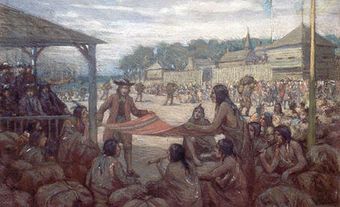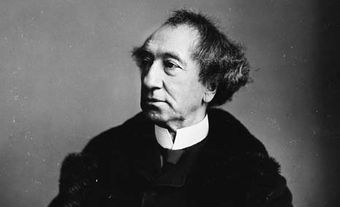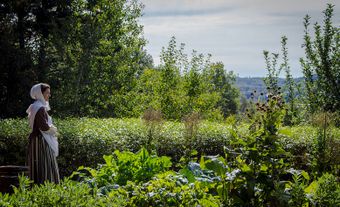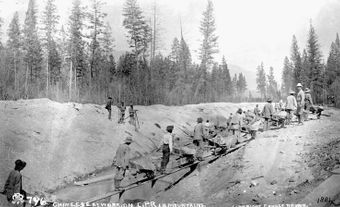Significant Events in Canadian History
The significance of an event cannot be measured scientifically. Every historian, journalist or student could make their own lists. This selection is meant to draw attention to a number of events in Canadian history that left an indelible mark on the lives of the people of the time and an indisputable memory in the minds of later generations.
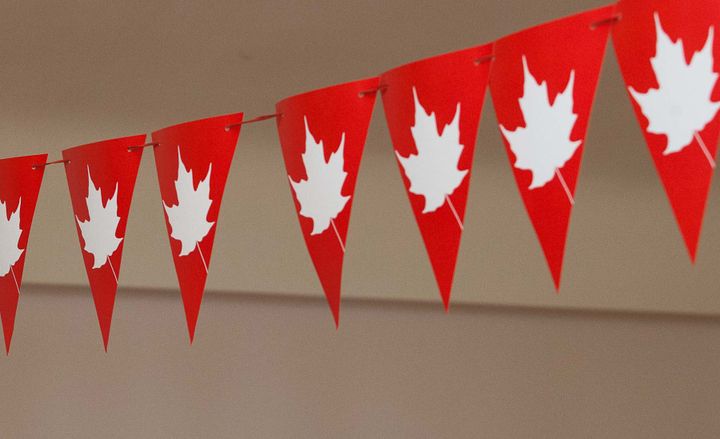
-
January 01, 0985
Exploration & Settlement
Bjarni Sights America
Bjarni Herjolfsson sighted mainland North America, probably Newfoundland, southern Labrador and Baffin Island. Bjarni was likely the first European to visit North America, and his discovery led to a brief Norse colonization of Newfoundland.
-
January 01, 1400
Indigenous Peoples Politics
Blackfoot Confederacy
A confederacy of Siksika (Blackfoot) nations is organized around bands. Each band has a male leader responsible for decision-making. He governs by consensus. (Note: The exact date of this event is unknown. The date provided here is an estimate.)
-
January 01, 1400
Politics
Mi’kmaq Grand Council
Made up of male representatives from across Mi’kmaq territory, the council is governed by a grand chief and rules by consensus. The role of chieftain is often handed down from father to son. (Note: The exact date of this event is unknown. The date provided here is an estimate.)
-
June 24, 1497
Exploration & Settlement
John Cabot Claims Atlantic Coast
John Cabot landed on the Atlantic coast of North America, claiming it for England. Cabot's discovery led to England's interest in what is now Atlantic Canada, especially the fishery.
-
January 01, 1500

Indigenous Peoples Politics
The Haudenosaunee (Iroquois) Confederacy is Active
Formed by five nations, the Haudenosaunee Confederacy is considered one of the earliest examples of a participatory democracy. (Note: The exact date of this event is unknown. The date provided here is an estimate.)
-
January 01, 1500
Indigenous Peoples
Indigenous Population Ranges From 200,000 to 500,000
Estimates for the Indigenous population range from 200,000 to 500,000 people, though some suggest it was as high as 2.5 million, with between 300 and 450 languages spoken.
-
January 01, 1500

Indigenous Peoples Politics
Huron-Wendat Village Councils
Civil and war-related affairs among the Huron-Wendat are determined by respective village councils. Decisions are reached by consensus. All men over 30 are council members but women have little-to-no say in council affairs. (Note: The exact date of this event is unknown. The date provided here is an estimate.)
-
July 24, 1534

Exploration & Settlement
Cartier Lands at Gaspé
Jacques Cartier is one of the first Europeans to enter the Gulf of the St. Lawrence River. In 1535, while on his second of three voyages, Cartier hears the Iroquoian word for village, kanata, and documents the name in his journal. The name Canada subsequently appears on the 1547 Harleian world map, indicating land north of the St. Lawrence.
-
January 01, 1600
Exploration & Settlement Indigenous Peoples
Fur Trade Becomes a Vast Commercial Enterprise
From the early 17th to the mid-19th centuries, the fur trade is a vast commercial enterprise across what is now Canada. Indigenous technology and knowledge are crucial to the competitive trade and to the survival of Europeans.
-
July 03, 1608

Exploration & Settlement
Founding of Québec
Samuel de Champlain established a fortified trading post at Québec, the perfect location to foster the fur trade and to serve as the base for its founder's idea of colonizing the remote country.
-
July 30, 1609
Exploration & Settlement Indigenous Peoples
Samuel de Champlain and His First Nations Allies Battle the Haudenosaunee
Colonial administrator Samuel de Champlain explores the traditional territory of the Haudenosaunee. On July 30, Champlain and his First Nations allies battle the Haudenosaunee, beginning 150 years of war between the Haudenosaunee and French colonial forces.
-
May 18, 1642
Exploration & Settlement Indigenous Peoples
Maisonneuve Founds Ville-Marie
Paul de Chomedey de Maisonneuve founded Ville-Marie, which was destined to become the most important trading post in New France and the future city of Montréal. Maisonneuve served as governor until 1665.
-
July 21, 1647

Exploration & Settlement Politics
First Civil Election in New France
Residents of Quebec City, Montreal and Trois-Rivières elect syndics, or trustees, to a colonial council responsible to the gouverneur. Syndics act as liaisons between residents and the council. However, they have no power to affect policy because the colonies are ruled by a monarchy.
-
April 17, 1649

Indigenous Peoples
Wendake Defeated by Haudenosaunee
Weakened by disease and cultural interference by the French, the Huron-Wendat homeland known as Wendake was destroyed by the Haudenosaunee (Iroquois). Between 1649 and 1650, about 500 Huron-Wendat left Georgian Bay to seek refuge close to the French, in the Quebec City region. Many were either killed or adopted into Haudenosaunee nations. However, the Huron-Wendat First Nation still remains — in Wendake, Quebec.
-
May 02, 1670
Exploration & Settlement Science & Industry
Hudson’s Bay Company is Established
The Hudson’s Bay Company is established, forming a monopoly and increasing the volume of goods in the fur trade. For centuries to come, blankets are widely traded, including the iconic HBC Point Blanket, first made in 1779 and still available today. Seen by some as an item of cultural importance, it reminds others of the forces of colonialism.
-
June 21, 1749
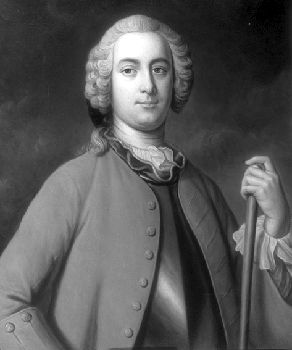
Exploration & Settlement
Founding of Halifax
Edward Cornwallis arrived in Chebucto harbour in advance of 2,567 settlers. Work began on the town of Halifax, which replaced Annapolis Royal as the capital of Nova Scotia and established a strong British foothold in Nova Scotia.
-
July 28, 1755

Exploration & Settlement
Expulsion of the Acadians
Between 1755 and 1763, approximately 10,000 Acadians are deported after delegates refuse to take an oath of allegiance to Britain. Acadians, the first French community in Canada, are allies of the Mi’kmaq and possess a distinctive culture. Following the Acadian Expulsion, thousands die of disease or starvation.
-
May 01, 1756
Military/Rebellions
Seven Years' War Begins
The Seven Years’ War is the first global war, fought in Europe, India, America, and at sea. In North America, Britain and France (aided by Indigenous allies) struggled for supremacy. With the Treaty of Paris, France formally cedes Canada to the British.
-
October 02, 1758
Politics
Meeting of the First Elected Legislative Assembly
At the first elected legislative assembly in what is now Nova Scotia, only property-owning Protestant men over the age of 21 are eligible to vote. (See also Nova Scotia: The Cradle of Canadian Parliamentary Democracy.)
-
September 13, 1759

Military/Rebellions
Battle of the Plains of Abraham
On the night of Sept 12-13, General James Wolfe led his soldiers up an unguarded footpath and set for battle before the fortress walls. Montcalm attacked in the morning but his line broke, and Québec fell into British hands. Both generals perished.
-
May 09, 1763
Indigenous Peoples Military/Rebellions
Pontiac's War
Pontiac’s Resistance provides a strong show of Indigenous unity. Under the leadership of Ottawa chief Obwandiyag (Pontiac), an Indigenous alliance tries to resist European occupation by ridding the lower Great Lakes region of English settlers and soldiers.
-
June 22, 1774
Politics
Quebec Act Passed
The Quebec Act was passed (effective 1 May 1775); it established French civil law, British criminal law, freedom of worship for Roman Catholics and government by appointed council. It extended the boundaries of the province to the Ohio Valley.
-
December 31, 1775
Military/Rebellions
American Invasion Fails
American forces laying siege to Québec launched a desperate night attack. American general Richard Montgomery was killed as the attack was repulsed with heavy casualties. The French habitants had failed to support the Americans and Canada remained British.
-
April 01, 1776

Exploration & Settlement
First Loyalists Arrive
The first United Empire Loyalists — 1,124 refugees from New England — arrived in Halifax, NS. Another 40,000 or so followed them to NS and to Québec. The immigration resulted in the formation of New Brunswick and Upper Canada.
-
June 11, 1792
Politics
First Elections in Lower Canada
The first elections are held in Lower Canada. Anyone over 21 who owns sufficient property can vote, including women.
-
July 21, 1793

Exploration & Settlement
Mackenzie Reaches the Pacific
Alexander Mackenzie party reached the Pacific via the Bella Coola River, the first explorer to complete the journey overland. Though a physical triumph, Mackenzie's achievement failed to provide the fur traders with a viable route.
-
June 12, 1811

Exploration & Settlement Indigenous Peoples
Selkirk's Red River Grant
The HBC granted an area of about 185 000 km² to Lord Selkirk for formation of a colony at Red River. His first settlers arrived in the summer of 1812. Despite tribulations the settlement grew into the first European colony in the North-West.
-
October 13, 1812
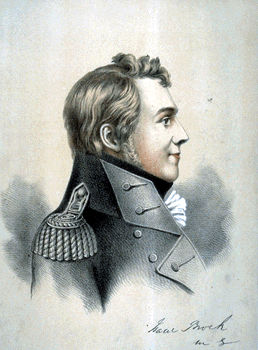
Indigenous Peoples Military/Rebellions
Battle of Queenston Heights
Americans crossed the Niagara River and attacked the high ground of Queenston Heights. His sword drawn, Major-General Brock led troops into battle and was fatally wounded. The battle essentially lost, Grand River Mohawk warriors led by John Norton (Teyoninhokarawen) prevented American forces from retreating for several hours until reinforcements led by Major-General Roger Sheaffe arrived and forced over 1,000 American soldiers to surrender.
-
February 15, 1815
Military/Rebellions
War of 1812 Ends
The War of 1812 ends with the peace Treaty of Ghent. However, the First Nations allies of the British and Canadian cause suffered; they lost warriors (including the great Tecumseh), lost hope of halting American expansion in the west, and their contributions were quickly forgotten by their allies.
-
November 30, 1829

Environment Science & Industry
Welland Canal Opened
Two schooners passed from Port Dalhousie to Port Robinson, Upper Canada, symbolically opening the Welland Canal and linking Lakes Erie and Ontario for the first time. The canal opened the way to the west and countered the threat of the US Erie Canal.
-
January 01, 1832
Science & Industry
Cholera Epidemic Spreads
Grosse Île, near Québec, was opened as a quarantine station during the cholera epidemics and all ships stopped there for inspection. This station was a futile attempt by the government to control the disease that killed up to 10% of the population.
-
August 01, 1834

Politics
Abolition of Slavery Act
Black people are now considered British subjects, paving the way for property-owning Black men to vote. But racism and discrimination at polling stations mean many do not cast their ballots. (See Slavery Abolition Act, 1833.)
-
March 03, 1835
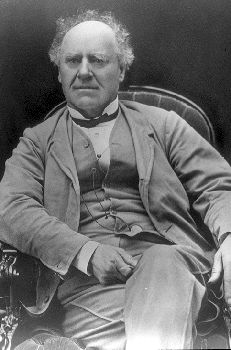
Politics Social History
Howe Acquitted of Libel
Joseph Howe was acquitted of libel for publishing an article in his newspaper, The Novascotian, critical of Halifax's magistrates. The trial marked a turning point in the history of reform politics in Nova Scotia.
-
July 21, 1836
Science & Industry
First Railway Opens in Canada
Canada's first railway, the Champlain and St Lawrence Railroad, officially opened; it began operations on July 25. The railway heralded the most important change in transportation in Canadian history.
-
November 16, 1837
Military/Rebellions
Insurrection in Lower Canada
Governor Gosford issued warrants for the arrest of 26 Patriote leaders on charges of high treason, initiating the events of the Lower Canada Rebellion. Troops and Patriotes were in battle a few days later.
-
January 01, 1845
Arts and Culture Social History
Garneau Publishes Histoire du Canada
The first volume of François-Xavier Garneau's Histoire du Canada was published at Québec. It was the most outstanding history book for a century in Québec and an incentive to patriotism and pride.
-
June 15, 1846

Politics
Oregon Boundary Treaty
The Oregon Boundary Treaty was signed, establishing the boundary between British North America and the US at 49° north latitude, leaving Vancouver Island in British hands, and creating a settlement with which Canada and the US could live in harmony.
-
October 22, 1846

Science & Industry
First Telegraph in Canada
The Toronto, Hamilton, Niagara and St Catharines Telegraph Company was established, the first telegraph company in Canada. The first section was opened for use 19 Dec 1846 from Toronto to Hamilton. The telegraph profoundly altered 19th century life.
-
January 01, 1847
Social History
Ryerson Publishes Report on Education
Egerton Ryerson published his Report on a System of Public Elementary Instruction for Upper Canada. It describes an education system based on Christian faith, universal access and government support. It would be a model for English-speaking Canada. For his contributions to education, Ryerson University in Toronto was named after him. However, his role in the development of the residential school system has led activists to call for the university to be renamed.
-
February 02, 1848
Politics
Responsible Government in Nova Scotia
James Boyle Uniake became leader of a new Reform government. Nova Scotia was thus the first colony in the British Empire in which responsible government was in effect. Responsible government meant that a colony enjoyed complete self-government in domestic affairs and that a government ruled only with the support of the majority of the elected Assembly (the origins of today's cabinet government).
-
May 01, 1849
Politics
Women’s Voting Rights Removed in the Province of Canada
Legislation barring women from voting is passed by the Province of Canada and becomes law.
-
January 10, 1850

Exploration & Settlement
Search for Franklin Begins
Robert McClure and Richard Collinson began the extensive search for Franklin, likely the greatest search mission in the history of exploration. In the process, more was revealed of the geography of the North than at any other time.
-
September 11, 1854
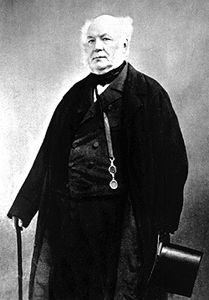
Politics
MacNab-Morin Coalition
Augustin Morin and Sir Allan MacNab formed a political coalition accomplished the secularization of the Clergy Reserves and the end to seigneurial tenure and provided the foundation for the future Conservative Party.
-
November 17, 1856
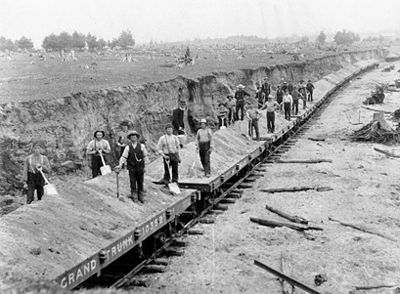
Science & Industry
Grand Trunk Completed
The Grand Trunk Railway was completed from Guelph to Stratford, Ont; the last stretch from St Marys to Sarnia was finished on November 21. The GTR was a significant factor in the economic development of Canada.
-
January 01, 1857
Indigenous Peoples Politics
Gradual Civilization Act Passed in the Province of Canada
The government attempts to assimilate First Nations men by offering them the right to vote if they voluntarily enfranchise. This means giving up rights, including treaty rights. Only one person elects to do so under this Act. (See also Indigenous Peoples in Canadian Law.)
-
April 25, 1858

Exploration & Settlement
Fraser River Gold Rush
The first wave of miners from California arrived at Victoria, en route to the Fraser River Gold Rush. The Gold Rush caused a precipitous decline in the Indigenous population and politically unified British Columbia.
-
November 09, 1859

Politics
Great Reform Convention
A convention of scattered reform elements of Upper Canada met in Toronto. Under George Brown's leadership the convention voted to support a legislative union of the Canadas and set the stage for closer collaboration between English and French.
-
June 27, 1860
Sports
Queen's Plate First Held
North America's oldest continuously run horse race, the Queen's Plate, was first held at Toronto's Carleton Track. It was open to all horses bred in Upper Canada that had not yet won money and the prize was 50 Guineas.
-
September 01, 1864
Politics
Charlottetown Conference
The Charlottetown Conference was held in Charlottetown, PEI. At the conference Maritime union was virtually dropped, and the delegates agreed to meet a new conference in Québec to discuss a Canadian scheme for a union of all the colonies.
-
March 08, 1867
Politics
British North America Act
The British North America Act was passed by the British Parliament and given royal assent by Queen Victoria on 29 March. It came into effect on 1 July. The Act joined the colonies of Canada, Nova Scotia and New Brunswick in one federal union. In 1949, Newfoundland becomes Canada’s newest province. In 1999, Nunavut becomes Canada’s newest territory. Its creation establishes self-governance for the region’s Inuit population.
-
September 20, 1867

Politics
First Election Post-Confederation
Sir John A. Macdonald leads the Conservative Party to victory. Men over the age of 21 who meet property qualifications can vote.
-
November 02, 1869

Indigenous Peoples Military/Rebellions
Red River Resistance
With 120 men, Louis Riel occupied Upper Fort Garry in the Red River Colony to block the transfer of Rupert’s Land from the Hudson’s Bay Company (HBC) to Canada. Known as the Red River Resistance, the Métis — led by Riel — and First Nations allies defended the Red River Colony from White settlers and government encroachment on their lands. Louis Riel was hanged for treason, and Cree chiefs Mistahimaskwa (Big Bear) and Pitikwahanapiwiyin (Poundmaker) were imprisoned. Promises to protect the Métis were still unfulfilled more than a decade later, sparking the Northwest Resistance in 1885. In 2019, Poundmaker was exonerated by the federal government.
-
May 08, 1871
Politics
Treaty of Washington
The Treaty of Washington granted Americans fishing rights in Canadian waters and the use of Canadian canals and the St Lawrence River. Canadians were allowed to navigate Lake Michigan, the St Clair Flats Canal and Alaskan rivers.
-
August 03, 1871
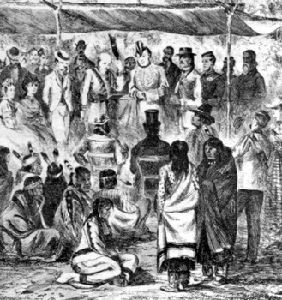
Indigenous Peoples
Treaty 1
The first post-Confederation treaty was signed at Lower Fort Garry, Man. The first of many “Numbered Treaties,” Treaty 1 was signed between the Crown and the Ojibwe and Swampy Cree Nations. The treaty included the provision of livestock, agricultural equipment and the establishment of schools in exchange for ceding large tracts of Indigenous hunting grounds.
-
August 21, 1871
Indigenous Peoples
Treaty 2
Treaty 2 was concluded with Chippewa of Manitoba, who ceded land from the mouth of Winnipeg River to the northern shores of Lake Manitoba across the Assiniboine River to the United States frontier.
-
May 01, 1872
Politics
Chinese Canadians Banned from Voting in BC
The British Columbia legislative assembly passes a law banning Chinese Canadians from voting. Previously, Chinese Canadian men could vote in provincial elections.
-
October 03, 1873
Indigenous Peoples
Treaty 3
Treaty 3 was signed by the Saulteaux (Chippewa) of northwestern Ontario and of Manitoba. For the surrender of a tract comprising about 55,000 sq. miles, the Dominion Government reserved not more than one square mile for each family of five and agreed to pay $12 per head and an annuity of $5 per head.
-
September 15, 1874
Indigenous Peoples
Treaty 4
Treaty 4 was signed at Fort Qu'Appelle, Saskatchewan, with Cree, Saulteaux (Chippewa) and other First Nations.
-
September 20, 1875
Indigenous Peoples
Treaty 5
Treaty 5 was concluded at Lake Winnipeg ceding an area of approximately 100,000 sq. miles inhabited by Chippewa and Swampy Cree (Maskegon) of Manitoba and Ontario.
-
April 12, 1876

Indigenous Peoples Politics
Indian Act
The Indian Act is introduced. The Act aims to eradicate First Nations culture in favour of assimilation into Euro-Canadian society. The Act also reinforces that Status Indians must voluntarily give up status and treaty rights to vote federally. Status Indian women are barred from voting in band council elections.
-
August 23, 1876
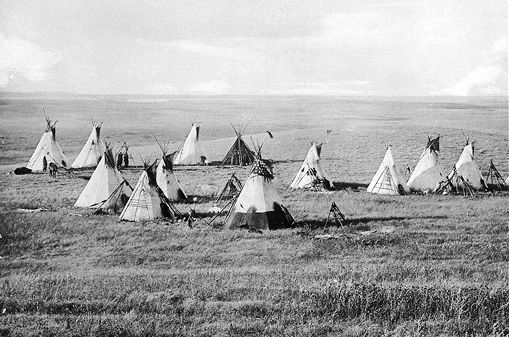
Indigenous Peoples
Treaty 6
Treaty 6 was signed at Carlton and at Fort Pitt with the Plains Cree, Woodland Cree and Assiniboine. It ceded an area of 120,000 sq. miles of the plains of Saskatchewan and Alberta.
-
September 22, 1877

Indigenous Peoples Politics
Treaty 7
Treaty 7 was signed at Blackfoot Crossing in southern Alberta by the Siksika, Kainai, Piikani, Tsuut'ina and Stoney. Canadian officials understood that by the treaty First Nations surrendered some 35,000 sq miles of land to the Crown in return for reserves, payments and annuities.
-
November 17, 1877
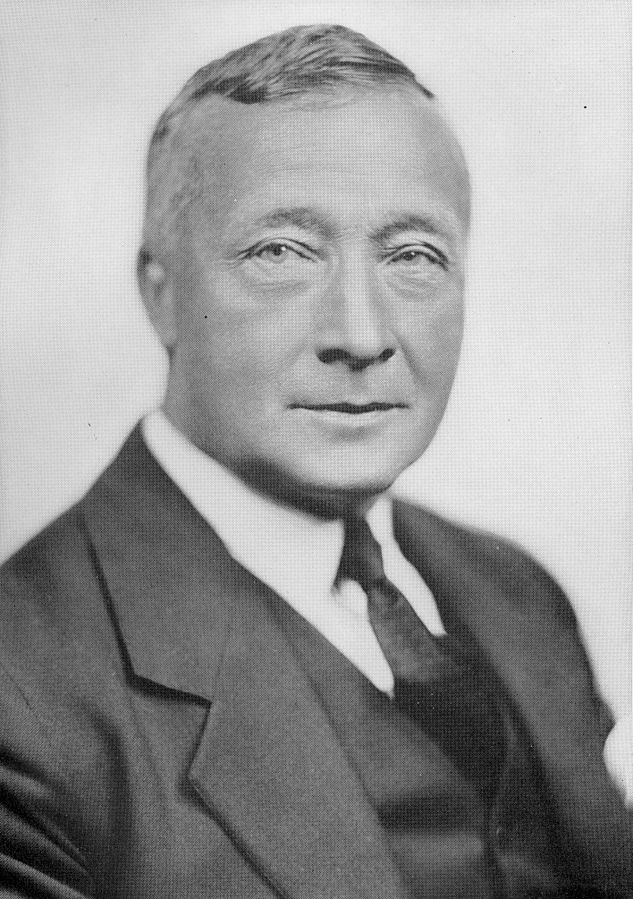
Sports
Birth of NHL’s Founding President, Frank Calder
Frank Calder was born in Bristol, England. He served as president of the National Hockey League (NHL) from its founding in 1917 until his death in 1943. The NHL’s Rookie of the Year award (Calder Memorial Trophy) and the American Hockey League’s championship trophy (Calder Cup) are both named in his honour.
-
September 01, 1880

Exploration & Settlement Indigenous Peoples
Arctic Sovereignty
British sovereignty over the Arctic Islands passed to Canada.
-
November 15, 1880

Sports
Hanlan World Champ
Edward Hanlan defeated E.A. Trichett of Australia for the world's championship of singles rowing on the Thames River course made famous by the Oxford-Cambridge boat race. Hanlan was Canada's first world sports champion.
-
January 01, 1885
Indigenous Peoples Politics
Electoral Franchise Act
The original draft of the Act gave federal voting rights to some women, but under the final legislation, only men can vote. The Act gives some Reserve First Nations with property qualifications the right to vote, but bars Chinese Canadians.
-
November 07, 1885

Science & Industry
Last Spike Driven for CPR
The “last spike” of the Canadian Pacific Railway was hammered by Lord Strathcona at Craigellachie, British Columbia. This fulfilled a government promise to connect BC to Eastern Canada via a transcontinental railway. Among the workers who built the railway were 15,000 labourers from China, many of whom died during the railway’s construction.
-
November 16, 1885

Indigenous Peoples Military/Rebellions
Louis Riel Hanged
Louis Riel was hanged for treason at the Regina jail. He had been convicted after a trial held in Regina from 28 July to 1 August. Macdonald's refusal to grant leniency made Riel a symbol of English-Canadian oppression.
-
March 31, 1890
Politics
Manitoba School Act
The Manitoba School Act abolished publicly funded support for separate schools for Catholics. The aggrieved French minority argued that the Act violated the agreements under which Manitoba entered Confederation.
-
March 22, 1894
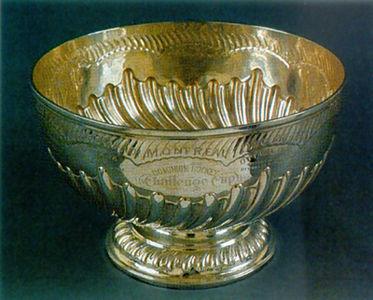
Sports
First Stanley Cup Awarded
The Stanley Cup, donated by Governor General Lord Stanley, was first awarded to the Montreal AAA hockey team. Montreal defeated the Ottawa Generals 3-1.
-
January 01, 1895
Politics
Japanese Canadians Lose the Right to Vote in BC
British Columbia amends the Provincial Voters’ Act to remove the right to vote from Japanese Canadians.
-
January 01, 1896
Exploration & Settlement
Sifton Encourages Immigration
Clifford Sifton removed red tape, broadened the selection of potential immigrants and offered incentives to those who would come to settle the Canadian West, "the last, best West." The result was an influx of immigrants from eastern and southern Europe that changed the composition of the Canadian population forever.
-
June 23, 1896

Politics
Liberal Victory, Laurier PM
In the federal election, the Liberals defeated the Conservatives with 118 seats to 88. Wilfrid Laurier became Canada's first French-Canadian prime minister and marked a turning point in Canadian politics after years of Conservative Party rule.
-
August 17, 1896

Environment Exploration & Settlement Science & Industry
Klondike Gold Rush Begins
George Washington Carmack, Skookum Jim and Tagish Charlie discovered gold on Bonanza Creek, a tributary of the Klondike River. During the Klondike Gold Rush from 1897 to 1899 at least 100,000 people stampeded to the gold fields.
-
June 13, 1898
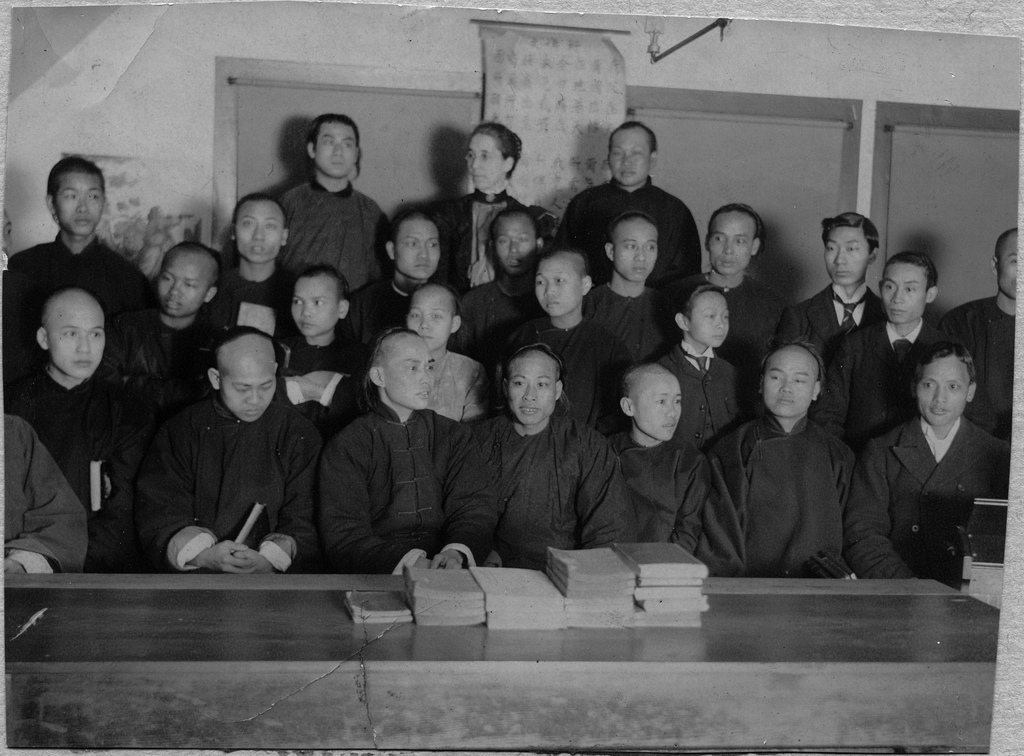
Politics
Federal Government Returns Determination of Voters to Provinces
Provinces are given the right to decide who can vote in provincial elections. Some exclude Chinese Canadians from voting provincially. However, federal legislation allows Chinese Canadians to vote in federal elections.
-
June 21, 1899

Indigenous Peoples
Treaty 8
Cree, Beaver, Chipewyan and Slavey First Nations ceded territory south and west of Great Slave Lake in northern Alberta to the federal government in Treaty 8.
-
July 04, 1904

Sports
Winnipeg Shamrocks Win First Olympic Gold in Men’s Lacrosse
The Winnipeg Shamrocks were one of two Canadian lacrosse teams that competed at the 1904 Olympic Summer Games. The Shamrocks won two games of field lacrosse to earn the first Olympic gold medal in men’s lacrosse. The 1904 Games also marked the first time Canada was truly represented at the Olympics.
-
August 26, 1905
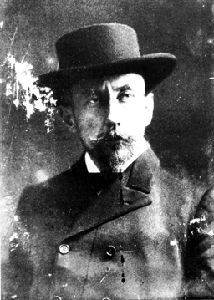
Exploration & Settlement
Amundsen Completes Passage
Roald Amundsen, travelling west of King William Island, sighted an American whaling ship that had come from San Francisco. At this point, he knew that he had achieved the Northwest Passage, a quest that had obsessed explorers for nearly 400 years.
-
September 01, 1905
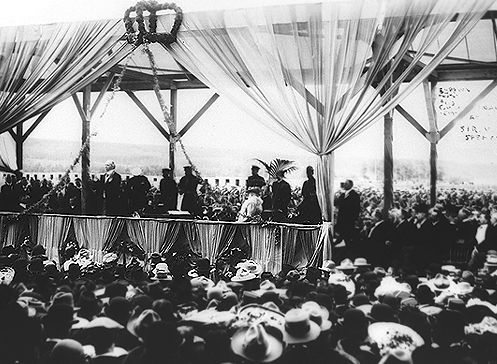
Exploration & Settlement Politics
Alberta and Saskatchewan Become Provinces
Alberta and Saskatchewan entered Canada as the 8th and 9th provinces by two federal Acts which received royal assent on 20 July. Alberta's boundary with Saskatchewan was set at 110°, though Albertans wanted 107°. The Acts (Autonomy Bills) declared that the West was to have non-denominational schools.
-
May 14, 1906

Science & Industry
Ontario Hydro Created
The Hydro-Electric Power Commission of Ontario was created, with Adam Beck as chairman. It was the first publicly owned electric utility in the world.
-
January 01, 1907
Environment Exploration & Settlement
Charles Saunders Develops Marquis Wheat
Charles Edward Saunders completed the development of Marquis wheat, a fast-maturing variety suited to the Prairies. It was first distributed to farmers in 1909 and greatly extended the area in which wheat could be grown. By 1920 it comprised 90% of the wheat grown on the Prairies.
-
January 01, 1907
Politics
BC Provincial Elections Act Amendment Act, 1907
British Columbia removes voting rights from anyone with origins in South Asia.
-
February 23, 1909

Science & Industry
Silver Dart Flies
John Alexander Douglas McCurdy (1886-1961) flew the aircraft the Silver Dart for about one kilometer at Baddeck, NS. It was the first powered flight of a heavier-than-air machine in Canada and the British Empire.
-
March 10, 1910

Indigenous Peoples
Death of S7ápelek (Chief Joe Capilano)
S7ápelek, also known as Chief Joe Capilano, was a Squamish Nation member and one of the most influential Indigenous leaders in British Columbia. Beginning in the late 19th century, S7ápelek became better known as Chief Joe Capilano and spent the rest of his life advocating for Canada’s recognition of Indigenous rights.
-
March 08, 1914
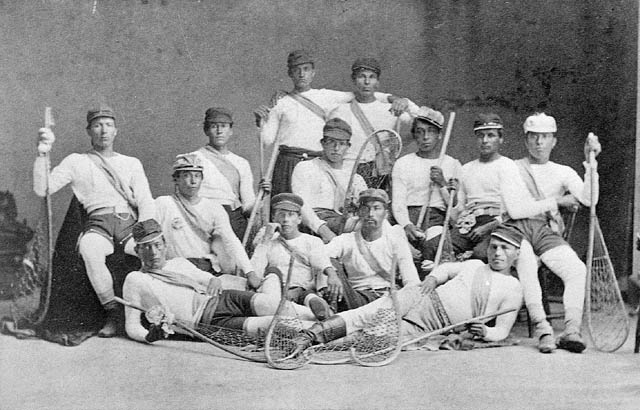
Sports
Birth of Lacrosse Superstar Bill Isaacs
Wilton “Bill” Isaacs was born in the Six Nations of the Grand River First Nation. He became one of Canada’s most outstanding lacrosse players. Isaacs was a superstar of box lacrosse, the indoor version of the game, which was extremely popular in the 1930s and 1940s.
-
January 01, 1916

Social History
First UNIA Chapters Are Established in Canada
In 1916, the Glace Bay Universal Negro Improvement Association (UNIA), one of the first Canadian divisions of the UNIA, opened in Nova Scotia. This organization was spearheaded by West Indian immigrants who were already familiar with the teachings of Marcus Garvey, founder of the UNIA. After the First World War, West Indians living elsewhere in the country — most notably in Montreal, Toronto and Edmonton — established their own UNIA divisions. For a time, the UNIA was the most important Black socio-economic and educational force in Canada.
-
January 28, 1916
Politics
Manitoba Women Win Right to Vote
Women in Manitoba who are of British descent or citizenship, 21 or older, and not otherwise disqualified are given the right to vote provincially and to hold provincial office. Other provinces soon follow and grant women the right to vote in provincial elections.
-
April 09, 1917

Military/Rebellions
Battle of Vimy Ridge
On Easter Monday, four Canadian divisions and one British brigade captured Vimy Ridge, near Arras, France, with a loss of 3578 killed and 7000 wounded. It was a brilliant victory for the Canadians, who sensed a new national awareness.
-
May 18, 1917
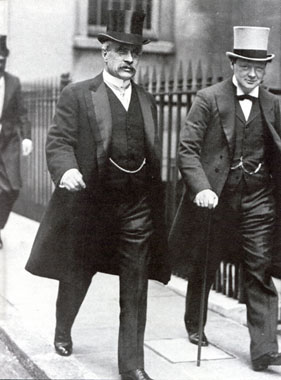
Military/Rebellions
Borden Announces Conscription
Sir Robert Borden announced his decision in Parliament to implement Conscription. The imposition of conscription on reluctant French Canadians was a failure and bitterly divided the country along French-English lines.
-
September 20, 1917
.png)
Politics
Wartime Elections Act and Military Voters Act
Parliament passes the Wartime Elections Act. The right to vote federally now extends to women in the armed forces and female relatives of military men. However, Citizens considered of “enemy alien” birth and some pacifist communities are disenfranchised.
-
December 06, 1917
Exploration & Settlement Military/Rebellions Social History
Halifax Explosion
At Halifax, the French munitions ship Mont Blanc collided with the Belgian relief ship Imo. The resulting explosion, the largest before the advent of the atomic bomb, killed more than 1,600 people and injured 9,000 in Canada's worst disaster.
-
May 24, 1918
Politics
Women Granted Right to Vote in Federal Elections
Many Canadian women are granted the right to vote in federal elections, but First Nations women can only vote if they give up their status and treaty rights.
-
September 08, 1918

Science & Industry
Spanish Influenza Epidemic
Possibly the most devastating epidemic in human history, which may have originated in Funston, Kansas, spread through Europe and the world, killing some 30 million people, including about 50 000 Canadians. The virus arrived with servicemen on board the ship Araguaya at Halifax. The first civilian outbreak in Canada occurred on September 8, 1918.
-
January 01, 1919
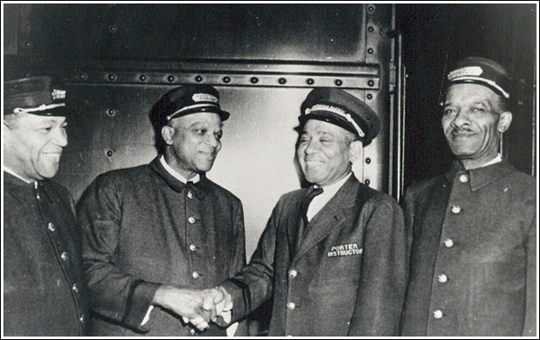
Social History
Order of the Sleeping Car Porters Is Recognized
In January 1919, the Order of Sleeping Car Porters (OSCP), the first Black railway union in North America, was finally recognized. Close to 90 per cent of all Black men in Canada worked in railway jobs, which were severely underpaid and had abysmal working conditions.
-
May 15, 1919

Social History
Winnipeg General Strike Begins
The Winnipeg General Strike, the largest strike in Canadian history, occurs. Between May 15 and June 25, more than 30,000 workers leave their jobs. The strike does not immediately improve job conditions, but it unites Canada’s working class.
-
May 21, 1919

Science & Industry
Birth of Inventor and Research Scientist John A. Hopps
Trained as an electrical engineer, John A. Hopps was recruited to design a cardiac pacemaker with a team of scientists at the Banting Institute in Toronto while he was working on another project at the National Research Council of Canada (NRC). This resulted in the invention of a portable artificial external pacemaker. The device marked a significant medical milestone and laid the groundwork for implantable pacemakers.
-
May 07, 1920

Arts and Culture
Group of Seven Exhibit
Seven Toronto-based artists, frustrated with the conservatism of Canadian art, exhibit their work as the Group of Seven. Their interpretations of the Canadian landscape gain international attention and create a new artistic vision in Canada.
-
July 01, 1920
Politics
Dominion Elections Act
The Dominion Elections Act enfranchised many of those who had been disenfranchised during the First World War, such as those originating from countries with which Canada had been at war. However, the Act stated that anyone who was disenfranchised by provincial legislation because of race would remain disenfranchised from the federal vote. This included persons of Chinese origin in Saskatchewan, and those of Indigenous, Chinese, Japanese, and South Asian origins in British Columbia.
-
July 27, 1921

Science & Industry
Banting and Best Isolate Insulin
Frederick Banting and Charles Best at the University of Toronto first isolated insulin. The first diabetes patient was treated on 11 January 1922. Banting and J.J.R. Macleod received the Nobel Prize for their achievement.
-
January 01, 1924
Indigenous Peoples Politics
Status Indian WWI Veterans Granted Right to Vote
Male Status Indian veterans of the First World War gain the right to vote in federal elections without losing their status and treaty rights.
-
August 05, 1928
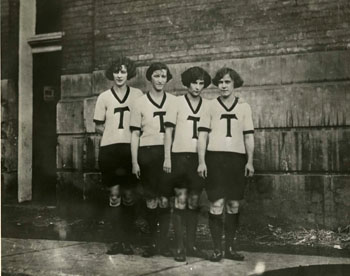
Sports
Canadian Women Win Olympic Gold
Ethel Catherwood, Fanny Rosenfeld, Ethel Smith, Florence Bell and Myrtle Cook won the 4x100m relay at the 1928 Olympic Summer Games in Amsterdam, the Netherlands. They were the first Canadian women to win Olympic gold. Women’s track and field events debuted at the 1928 Games. Seven Canadian women (six sprinters and one swimmer) medalled at the competition, winning two gold medals, a silver and a bronze.
-
January 23, 1929

Science & Industry
Birth of John Polanyi
Nobel Prize winner John Charles Polanyi was born at Berlin, Germany.
-
October 24, 1929
Social History
The Stock Market Crash of 1929
The collapse of the American stock market begins the Great Depression, which ravages the Canadian economy during the “Dirty Thirties.” Life is especially harsh in the Prairies, where drought worsens conditions. The crisis inspires the creation of social welfare programs.
-
January 01, 1931
Politics
Japanese-Canadian WWI Veterans in BC Granted Right to Vote
Veterans of the First World War in British Columbia become the first Japanese Canadians granted the right to vote in federal or provincial elections.
-
December 11, 1931
Politics
Statute of Westminster is Passed
The Statute of Westminster received royal assent after being passed by the British Parliament. By establishing complete legislative equality between the parliaments of Britain and Canada, it is the closest Canada has come to a declaration of independence.
-
May 26, 1932

Arts and Culture
CRBC (future CBC) Established
Parliament passed an Act establishing the publicly funded Canadian Radio Broadcasting Commission, the forerunner of the Canadian Broadcasting Corp of 1936. Before the CRBC almost the only programs available to Canadians were from the US.
-
August 01, 1932

Politics Social History
CCF Founded
The Co-operative Commonwealth Federation was founded in Calgary. Led by J.S. Woodsworth, the CCF was the first major democratic socialist movement in Canada and went on to have a profound effect on the Canadian political landscape.
-
July 01, 1933
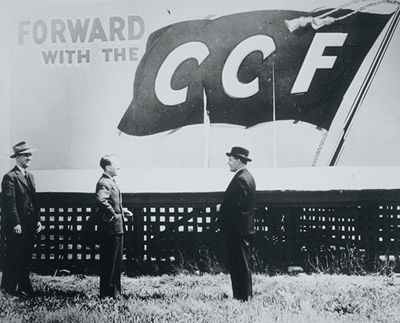
Politics
CCF Approves the Regina Manifesto
The Regina Manifesto was the founding policy document of the Co-operative Commonwealth Federation (CCF). Written in 1933 and released at the party’s convention in Regina, the 14-point policy statement called for eradicating capitalism and adopting socialist economic and social policies in a democratic state. In 1956, the CCF replaced the Regina Manifesto with the Winnipeg Declaration.
-
January 01, 1934
Indigenous Peoples Politics
Dominion Franchise Act
Inuit and First Nations persons living on reserves are disqualified from voting in federal elections, except for First Nations veterans who had previously received the vote.
-
September 21, 1934

Arts and Culture
Birth of Leonard Cohen
Poet, novelist, singer and songwriter Leonard Cohen was born in Westmount, Québec. Cohen was one of the most iconic Canadian artists of the 20th century. A sage, mystic, bohemian and romantic, he built an acclaimed body of literary work and a revered career in pop music.
-
August 22, 1935

Politics
Social Credit Victory in Alberta
Charismatic Bible-thumping William Aberhart led the Social Credit Party to victory in the Alberta provincial elections. He was sworn in on September 3. The party dominated Alberta politics until 1971.
-
August 14, 1936

Sports
Canada Wins Silver Medal in Men’s Basketball
Canada won the silver medal in men’s basketball at the 1936 Olympic Summer Games in Berlin, losing to the United States. Many Canadians (and Americans) wanted to boycott the 1936 Olympic Games because of Nazi Germany’s treatment of Jews. However, others felt that participation in the Olympics would be a more effective challenge to Nazi ideology. Irving “Toots” Maretzky, a forward on the Canadian team, was one of nine Jewish athletes who medalled at the 1936 Games.
-
January 01, 1938

Environment
Ducks Unlimited Canada
Ducks Unlimited Canada was founded in 1938, one year after Ducks Unlimited Inc. was founded in the United States. The organization received money from waterfowl hunters for wetland habitat conservation projects in Canada.
-
December 12, 1938

Social History
First Mosque in Canada Opens
Canada’s first mosque, Al Rashid in Edmonton, was funded through initiatives from the Arab community, led by Hilwie Hamdon. The Al Rashid Mosque has played a significant role in the growth of the Muslim community in Alberta and across the country.
-
May 02, 1939

Arts and Culture
National Film Board Created
The National Film Act created the National Film Board, headed by Scots film producer John Grierson. The NFB pioneered developments in social documentary, animation, documentary drama and direct cinema. Its films have won hundreds of international awards.
-
September 10, 1939
Military/Rebellions
Canada Declares War on Germany
Canada declared war on Germany, 7 days after Britain and France. The first Canadian troops left for England in December. Although "obliged to go to war at Britain's side," King's delay of a week was a symbolic gesture of independence.
-
December 17, 1939
Military/Rebellions
Air Training Plan Established
The British Commonwealth Air Training Plan was established. Operating from 1940–45 the BCATP trained some 131,000 airmen — one-half the total Commonwealth aircrew — a decisive Canadian contribution to victory in the Second World War.
-
March 22, 1940

Sports
Birth of Dave Keon
Dave Keon was born in Noranda, Quebec. Named the NHL’s Rookie of the Year in 1961, Keon began his professional career with the Toronto Maple Leafs. He won four Stanely Cups and the 1967 Conn Smythe Trophy with the Leafs and played in the NHL for 18 seasons. Keon was inducted into the Hockey Hall of Fame and Canada’s Sports Hall of Fame. He was voted the greatest player in Leafs franchise history in 2016.
-
February 26, 1942
Exploration & Settlement Military/Rebellions
Japanese Relocation
Following the Japanese strike on Pearl Harbour, the federal government interns 22,000 Japanese men, women and children in British Columbia for the remainder of the war. The government apologizes for Japanese internment in 1988. Similar actions had taken place in 1914, with the internment of nationals from Germany, and the Austro-Hungarian and Turkish Empires.
-
August 19, 1942

Military/Rebellions
Dieppe Raid
Canadian and British troops raided the French port of Dieppe to test German defences. The raid lasted only 9 hours, but of the nearly 5000 Canadian soldiers involved, more than 900 were killed and 1874 taken prisoner.
-
January 01, 1944

Indigenous Peoples Politics
Status Indian WWII Veterans Granted Right to Vote
Status Indian veterans who served in the Second World War and their spouses are permitted to vote in federal elections without losing status, with some conditions.
-
June 06, 1944
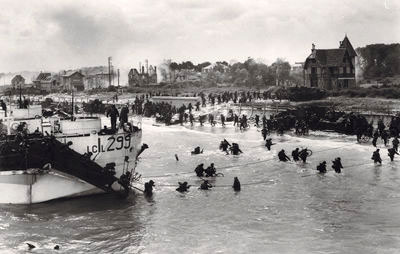
Military/Rebellions
Normandy Landings (D-Day)
The 3rd Canadian Division and 2nd and 3rd Armoured Brigades landed on the beaches at Courcelles, St Aubin and Bernières-sur-Mer on the Normandy Coast as part of the invasions that led to the liberation of Europe from Nazi occupation.
-
November 08, 1946
Social History
Viola Desmond Dragged Out of Nova Scotia Movie Theatre
Viola Desmond is dragged out of a Nova Scotia movie theatre and charged by police after she refuses to move from the main floor of the theatre to the balcony, where Black patrons were segregated. Her decision to fight her charges raises awareness of the racism experienced by Black Canadians. The Nova Scotia government posthumously pardons her in 2010.
-
January 01, 1947
Politics
Canadian Citizenship Act and repeal of Chinese Immigration Act
Changes to federal legislation allow Chinese and South Asian Canadians to vote. However, it isn’t until 1951 that the final restrictions are lifted in provincial elections Canada-wide.
-
February 13, 1947

Environment Science & Industry
Hunter Strikes Oil at Leduc
Vern "Dry Hole" Hunter struck oil near Leduc, Alberta. The discovery ended a long decline in the Alberta oil industry, began an era of prosperity for the province and spared Canada dependence on foreign oil.
-
July 22, 1947
Science & Industry
Canada's First Nuclear Reactors
The NRX reactor, the ancestor of Canada's unique CANDU reactors, "went critical" at Chalk River, Ont. The NRX was based on Canada's first nuclear reactor, ZEEP (1 watt of power), which was built at Chalk River in 1945.
-
January 01, 1948
Indigenous Peoples Politics
Amendments to Dominion Elections Act
Race is no longer grounds for exclusion from voting in federal elections. However, Status Indians still have to give up their Status in order to vote.
-
January 01, 1949
Indigenous Peoples Politics
First Nations Win Right to Vote Provincially
Except in Nova Scotia and Newfoundland, Status Indians had been barred from voting provincially. Beginning with British Columbia in 1949 and ending with Quebec in 1969, First Nations peoples gradually win the right to vote in provincial elections without losing status or treaty rights.
-
January 01, 1949
.png)
Politics
Japanese Canadians Win Right to Vote in BC
The last restriction on Japanese Canadians’ voting rights is lifted when British Columbia grants them the right to vote in provincial elections.
-
March 31, 1949
Politics
Newfoundland Becomes Province
Newfoundland entered the Dominion of Canada as the 10th province through an Act of Westminster. The first session of the legislature was held at St. John's on 13 July.
-
April 04, 1949
Politics Science & Industry
North Atlantic Treaty (NATO)
Canada, along with 11 other countries, signed the North Atlantic Treaty in Washington, DC. The NATO treaty marked a new era of ties with the United States and of distance from Great Britain and spelled out the importance of economic collaboration.
-
January 01, 1950
Indigenous Peoples Politics
Inuit Granted Right to Vote
Inuit are granted the right to vote in federal elections, but the isolation of several communities means many cannot access polling stations. Later reforms increase access to ballot boxes.
-
October 23, 1950

Science & Industry
Bigelow, Callaghan and Hopps Unveil the Portable Artificial External Pacemaker
Cardiac surgeon Dr. Wilfred Bigelow, research fellow Dr. John Carter Callaghan, and Dr. John A. Hopps of the National Research Council of Canada delivered their findings on their newly invented portable artificial external pacemaker to the American College of Surgeons in Boston. The device was designed to send electric pulses to the heart, causing the heart to contract and pump blood to the body. It marked a significant medical milestone and laid the groundwork for implantable pacemakers.
-
October 31, 1950
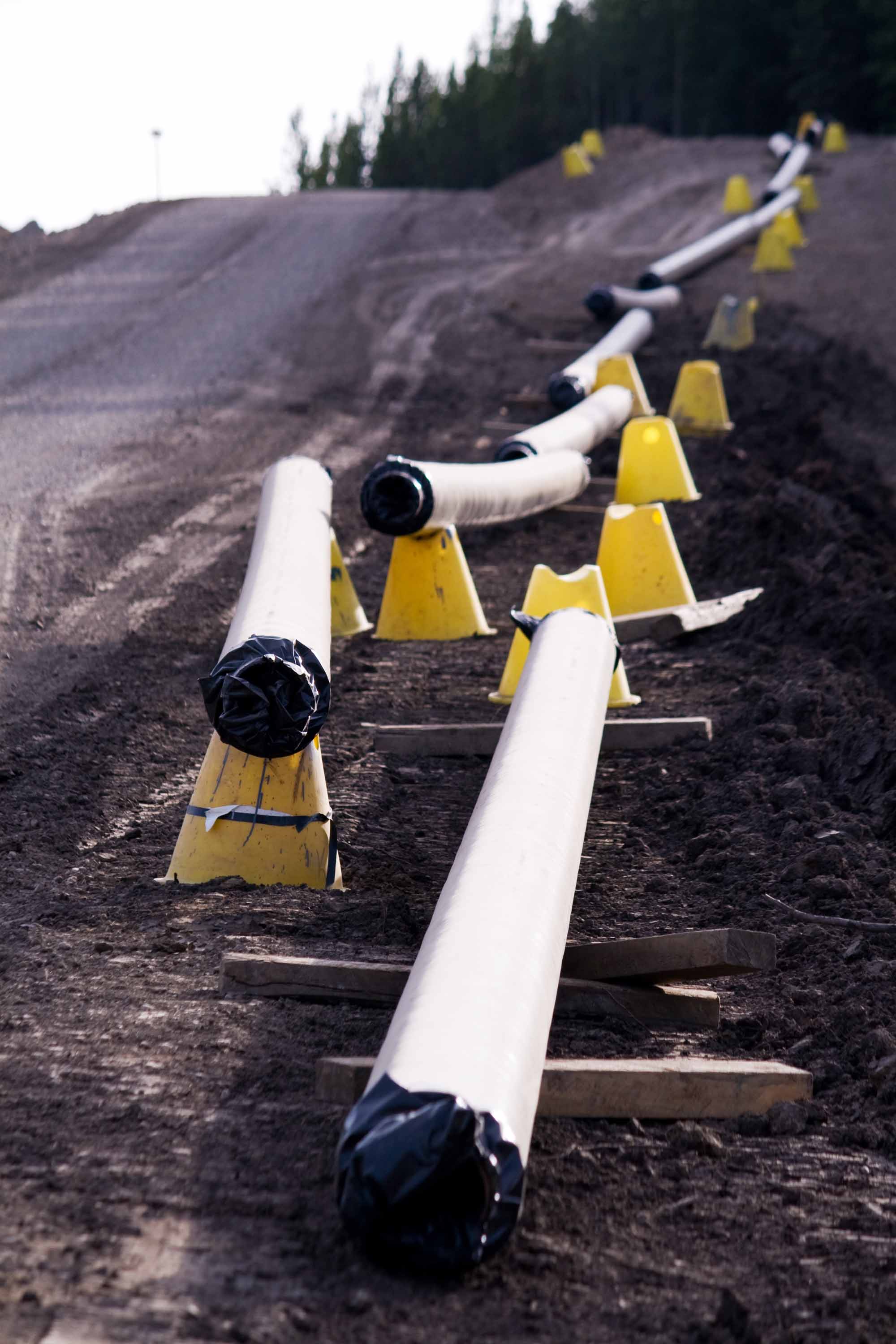
Environment Science & Industry
Pipeline Completed
The 1770 km oil pipeline from Edmonton to the Great Lakes was completed, linking Canada's gas fields with the markets of central Canada. In 1958 Alberta gas finally reached Toronto and imports of Texas gas ended.
-
January 01, 1951
Indigenous Peoples
First Nations Women Granted Right to Vote in Band Council Elections
Changes to the Indian Act grant First Nations women the right to vote in band council elections.
-
June 01, 1951

Arts and Culture
Massey Report Tabled
The report of the Massey Commission was tabled in the House of Commons; among its recommendations was the creation of the Canada Council.
-
January 01, 1955

Arts and Culture
Gould Records Goldberg Variations
Glenn Gould made his Washington and New York debuts. He made his first recording of the Bach Goldberg Variations later that year (released 1956), one of the most famous recordings of the century.
-
September 15, 1956

Science & Industry
Reports of Canada’s First Successful Open-Heart Surgery
Dr. John Carter Callaghan performed Canada’s first successful open-heart surgery on 10-year-old Susan Beattie, who had a hole in her heart. On 15 November 1956, the Edmonton Journal described the event as “the greatest single advance in heart surgery in recent years.” Callaghan was also known for co-developing the portable artificial pacemaker.
-
November 04, 1956

Politics
Pearson's Peace Plan
L.B. Pearson and his colleagues at the United Nations won General Assembly support for an international force to secure the cessation of hostilities in the Suez Canal crisis in Egypt. Canadian General E.L.M. Burns was named commander of the UN Emergency Force. This establishes Canada’s reputation as a peacekeeping nation and earns Pearson a Nobel Peace Prize.
-
December 15, 1956

Science & Industry
Reports of Canada’s First Blue-Baby Operation
On 15 December 1956, the Edmonton Journal reported on a rare heart operation. An 18-month-old baby, Sherry Anderson, suffered from blue-baby syndrome, a condition that causes skin to look bluish due to a shortage of oxygen in the blood. Dr. John Carter Callaghan and his team performed an operation to fix this condition for the first time in Canada.
-
April 01, 1959

Environment Science & Industry
St Lawrence Seaway Formally Opened
The St Lawrence Seaway was opened to commercial shipping. Queen Elizabeth II and President Eisenhower dedicated it on June 26. The Seaway provided transportation for ocean going vessels from Lake Superior to Montréal.
-
June 22, 1960

Politics
Liberals Win Québec
The Liberals under Jean Lesage won the Québec provincial election, finally breaking the hold of the Union Nationale, and signalling a time for change and reform that has become known as the Quiet Revolution. Lesage was sworn in as premier on 5 Jul.
-
August 04, 1960
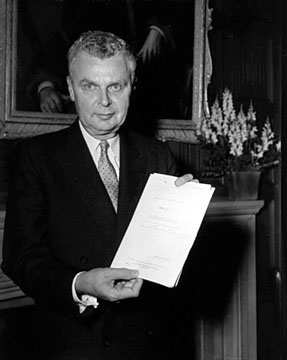
Politics Social History
Canadian Bill of Rights Approved
The House of Commons approved the Canadian Bill of Rights, which received royal assent on August 10. Although the Bill did not bind the provinces, it obliged the federal government to gurantee civil rights and freedoms to all Canadians.
-
July 01, 1962
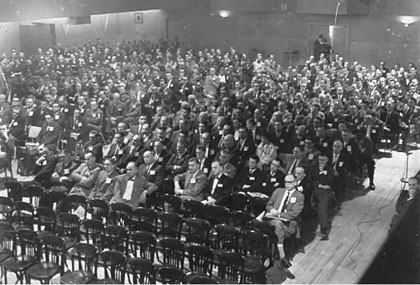
Science & Industry
Medicare in Effect: Doctors Strike
When the Saskatchewan Medicare Act came into force, most Saskatchewan doctors closed their offices. The Medical Care Insurance Commission brought doctors from out of province to meet the emergency.
-
December 15, 1964

Arts and Culture Politics
New Flag Adopted
A new national flag of Canada was adopted after much debate. The Senate gave its approval on 17 December. Queen Elizabeth signed the royal proclamation on 28 January and the new flag, with its red maple leaf and side bars, flew officially for the first time on 15 February 1965.
-
February 15, 1965

Politics
Flag of Canada Raised
The Flag of Canada was raised for the first time on Parliament Hill, Ottawa.
-
July 09, 1969
Politics
Official Languages Act (1969)
The Official Languages Act was given assent, to come into effect on September 7. It declared English and French the official languages of the federal administration. Federal government services — including all services related to federal elections — must now be available in both French and English. (See Official Languages Act, 1969.)
-
January 01, 1970
Politics
Voting Age is Lowered to 18
Parliament passes legislation lowering the federal voting age from 21 to 18. This adds two million Canadians to the electoral rolls.
-
January 01, 1970

Science & Industry
Plant Gene Resources of Canada is Established
Plant Gene Resources of Canada (PGRC), Canada’s national seed gene bank, was founded to protect, preserve, and enhance the genetic diversity of Canada’s important agricultural plants and their wild relatives. PGRC has played a major role in protecting Canada’s agricultural crops and biodiversity while contributing to food security at home and around the world.
-
September 04, 1972
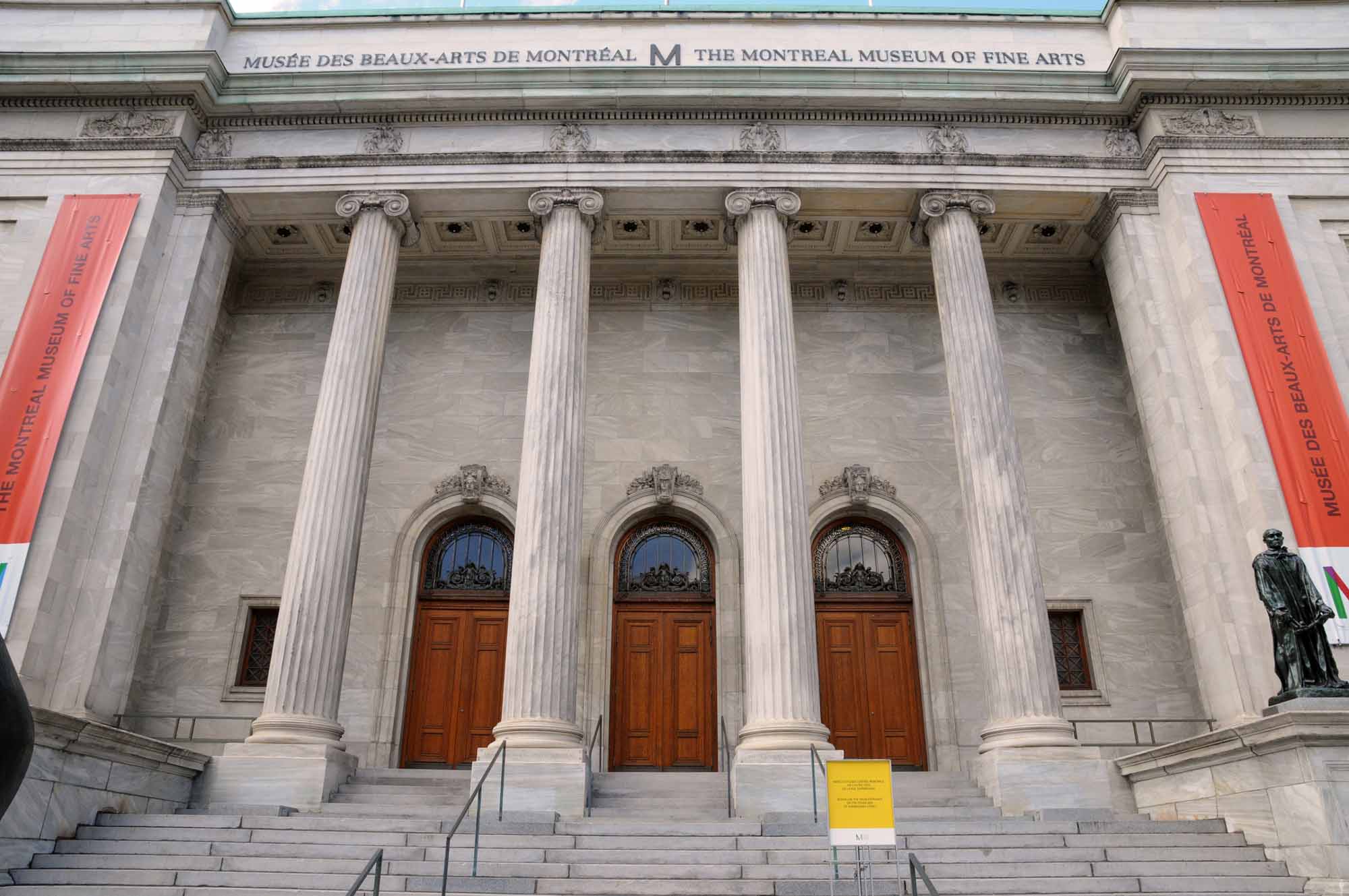
Arts and Culture
Skylight Caper (Montreal Art Heist)
In the early morning hours of 4 September 1972, three armed individuals accessed the Montreal Museum of Fine Arts through a skylight and stole 18 paintings, as well as 39 figurines and pieces of jewelry. The so-called Skylight Caper was the most valuable theft in Canadian history. Valued at $2 million in 1972, the artworks were estimated to be worth $20 million in 1992, although a rare Rembrandt landscape alone was estimated to be worth $20 million in 2017.
-
September 28, 1972
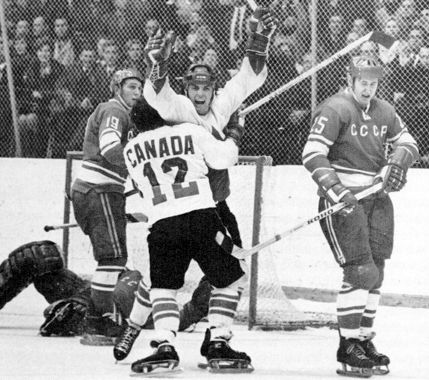
Sports
Henderson's Goal in Moscow
Paul Henderson scored the dramatic winning goal with 34 seconds left as Canada defeated the Soviet Union 6–5 in the final game of the Summit Series.
-
November 09, 1972
Science & Industry
Anik A-1 Launched
Canada launched the world's first geostationary domestic satellite, Anik A-1
-
January 31, 1973
Indigenous Peoples
Calder et al. v. Attorney General of British Columbia Decision Is Released
In 1967, the Nisga’a Nation, led by Chief Frank Calder, initiated a court case against the province of British Columbia to assert Nisga’a title to their land. In 1973, six of the seven justices of the Supreme Court of Canada recognized Aboriginal title within Canadian law. However, the Nisga’a Nation lost its court case based upon a technicality. Despite the loss of this court case, the Nisga’a Nation signed a treaty with the province of British Columbia and the Canadian government that took effect in 2000.
-
April 20, 1973
Science & Industry
Anik A-2 Launched
The telecommunications satellite Anik A-2 was launched from Cape Canaveral, Fla. With its launch, Canada became the first country in the world to employ satellites for domestic communications.
-
May 01, 1975
Science & Industry
Anik A-3 Launched
Communications satellite Anik A-3 was launched.
-
June 27, 1976

Politics
Canada Attends First Meeting of the G7
The G7, or Group of Seven, is an international group comprising the governments of the world’s largest economies. It was founded as the G6 in 1975 and became the G7 with the addition of Canada in 1976.
-
April 12, 1980
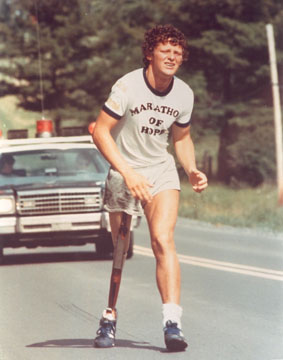
Sports
Terry Fox Begins Run
Terry Fox began his Marathon of Hope in St. John's, NL, to raise money for cancer research. The run ended on 1 September in Thunder Bay, ON, after cancer was discovered in his lungs. Within days the marathon had raised over $10 million.
-
May 20, 1980
Politics
Québec Referendum
The first of two Quebec referendums is held. Initiated by the Parti Québécois, it asks Quebec voters whether or not to approve negotiations leading to the province’s sovereignty. The “No” side wins with 60 per cent support. After the failure of two constitutional accords, a second vote in 1995 narrowly approves of the province remaining in Canada, with 50.58 per cent support. In 2006, the federal government recognizes that the Québécois form a “nation” within a united Canada.
-
March 08, 1982
Politics
Canada Act Passed
The British House of Commons passed the Canada Act of 1982. It was adopted by the House of Lords on March 25. The Act ended British legislative jurisdiction over Canada. Queen Elizabeth II signed the proclamation in Ottawa on April 17.
-
April 17, 1982

Politics
Canadian Charter of Rights and Freedoms
The Canadian Charter of Rights and Freedoms affirms the right of every Canadian citizen 18 and older to vote and to stand as a candidate.
-
September 16, 1987

Environment
Signing of The Montreal Protocol
Canada signed the Montreal Protocol on Substances that Deplete the Ozone Layer, an international environmental agreement. An active treaty that regulates the production and consumption of man-made ozone depleting substances (ODS), it is the only United Nations treaty to have been ratified by every country in the world.
-
January 01, 1988
Politics
People with Intellectual Disabilities Granted Right to Vote
People with intellectual disabilities are granted the right to vote after a successful Charter challenge.
-
January 01, 1989
Politics Science & Industry
Free Trade Goes Into Effect
The Free Trade Agreement between Canada and the US went into effect. The pact, later expanded through NAFTA, would profoundly alter the economic relationship between Canada and the United States.
-
March 01, 1989
Science & Industry
Creation of the Canadian Space Agency
The Canadian Space Agency (CSA) was established and Larkin Kerwin was made the organization’s first president.
-
June 23, 1990

Indigenous Peoples Politics
Meech Lake Accord Collapses
The Meech Lake Accord collapsed after the self-imposed deadline passed. The collapse owed much to Premier Clyde Wells' blockage in Newfoundland and failure to pass in Manitoba thanks to MLA Elijah Harper. It led to further constitutional wrangles and the renewal of the separatist movement in Québec.
-
July 11, 1990
Indigenous Peoples
The Oka Crisis Begins
The Oka Crisis is triggered by plans to expand a golf course and build luxury condominiums on disputed lands that include the burial grounds of the Mohawk people. A 78-day violent standoff follows between Mohawk protestors, police and the army in Oka, QC.
-
May 14, 1996

Sports
Birth of Aurélie Rivard
One of Canada’s best para-athletes, Aurélie Rivard was born in St-Jean-sur-Richelieu, Quebec. As of 2021, she had won 10 Paralympic medals (five gold, three silver and two bronze), 14 medals at the International Paralympic World Swimming Championships, and seven medals at the Parapan American Games. She had also set multiple world records in the women’s 50 m, 100 m, 200 m and 400 m freestyle.
-
July 27, 1996

Sports
Bailey Wins 100 Metres
Sprinter Donovan Bailey established a new world record and earned himself a gold medal at the Summer Olympics in Atlanta. The victory set off an outburst of national pride in winning the glamour event of the Olympic Games.
-
January 01, 2005

Sports
Own the Podium is Created
Created in 2005 in advance of the 2010 Olympic Winter Games in Vancouver, Own the Podium is a non-profit organization that assists national sports bodies in Canada with their investment and training strategies. Based in Ottawa and Calgary, the program provides financial assistance to high-performance Canadian athletes and coaches.
-
February 25, 2010
Sports
Women's Hockey Team Wins Third Olympic Gold
Canada's women's hockey team won its third Olympic gold medal at the Vancouver Winter Olympics, defeating the US 2-0. The team was later chastised by the media for taking its victory party on to the ice after the fans had left the building.
-
February 28, 2010

Sports
Men's Hockey Team Wins Olympic Gold
The Canadian men's hockey team won the Olympic gold medal at the Vancouver Winter Olympics, defeating the US 3-2 in overtime when centre Sidney Crosby, assisted by Jarome Iginla, scored against the US. Crosby's goal is considered one of the greatest in the history of Canadian hockey.
-
November 01, 2012
Indigenous Peoples
Idle No More Movement Begins
Four women start Idle No More as a national (and online) movement of marches and teach-ins, raising awareness of Indigenous rights and advocating for self-determination.
-
May 01, 2013

Indigenous Peoples
First Orange Shirt Day
Residential School survivors and their families gathered at Williams Lake, BC, to honour the survivors. Phyllis Webstad, a Northern Secwepemc (Shuswap) woman, spoke of her first day at Residential School, when she was stripped of her new orange shirt. From this came the idea to adopt the orange shirt as a symbol of remembrance, teaching and healing.
-
September 09, 2014

Exploration & Settlement
Franklin Expedition Ship Discovered
The HMS Erebus, one of Sir John Franklin's expedition ships, was found submerged off the coast of King William Island. The ship was part of Sir John Franklin's 1845 expedition to find the Northwest Passage from the Atlantic Ocean to Asia.
-
November 06, 2014

Sports
Farhan Zaidi Makes History as MLB General Manager
Farhan Zaidi was hired as the general manager of the Los Angeles Dodgers, making him Major League Baseball’s first Muslim and first South Asian general manager. He also became only the second Muslim executive in MLB and only the sixth general manager from Canada. Born in Sudbury and raised in the Philippines, Zaidi left the Dodgers in 2018 to join the San Francisco Giants. He was named MLB Executive of the Year in 2021 after the Giants finished first overall with 107 wins — the most in franchise history.
-
October 06, 2015
Science & Industry
Arthur McDonald Wins Nobel Prize in Physics
Arthur B. McDonald, a physicist at Queen's University in Kingston, Ontario, was awarded the 2015 Nobel Prize in Physics for discovering that neutrinos — one of the smallest particles of matter — have mass. Neutrinos were previously thought to be massless. He shares the prize with Takaaki Kajita of Japan, whose research broke ground on the same subject. According to the Royal Swedish Academy of Sciences (the organization that awards the Nobel), "the discovery has changed our understanding of the innermost workings of matter."
-
February 11, 2016
Indigenous Peoples
Last Fluent Nuchatlaht Speaker Dies
Alban Michael, the last fluent speaker of the Nuchatlaht language, died in Campbell River, British Columbia, at age 89. Raised on Nootka Island, Michael spoke only Nuchatlaht until he was forced to learn English at a residential school in Tofino as a child. He nevertheless maintained his fluency in Nuchatlaht so that he could speak with his mother, who did not speak English.
-
August 20, 2016

Arts and Culture
The Tragically Hip’s Final Concert
Beloved Canadian rockers The Tragically Hip played their final show to a hometown crowd at the K-Rock Centre in Kingston, Ontario. It was the last stop on the band’s Man Machine Poem tour, announced in the wake of frontman Gord Downie’s diagnosis of terminal brain cancer in December 2015. More than 11 million people — nearly a third of the Canada’s population — tuned in to the live CBC broadcast on television, radio and online. Prime Minister Justin Trudeau was among the audience members present at the “national celebration,” in which the band played from its 30-year catalogue for nearly three hours. (See also A Place to Happen.)
-
September 12, 2016

Exploration & Settlement
Discovery of HMS Terror
A team from the Arctic Research Foundation (founded by Jim Balsillie) announced that they had found the second lost ship of the Franklin expedition, HMS Terror, in Nunavut’s Terror Bay, north of where the Erebus was found in 2014. The discovery was confirmed by Parks Canada on 26 September 2016.
-
November 07, 2016

Arts and Culture
Death of Leonard Cohen
Poet, novelist, singer and songwriter Leonard Cohen died in Los Angeles, California, at age 82. Born in Westmount, Québec, Cohen was one of the most iconic Canadian artists of the 20th century. A sage, mystic, bohemian and romantic, he built an acclaimed body of literary work and a revered career in pop music.
-
April 23, 2018

Social History
Toronto Van Attack Kills 10, 8 of them Women
At 1:24 p.m., a 25-year-old man who identified as an incel (involuntary celibate), drove a rented van onto the sidewalk on Yonge Street in Toronto’s North York business district. He proceeded to drive south, intentionally running over pedestrians. When he was stopped by police 10 minutes later, 10 people (eight of them women) were dead and 16 were injured. The driver was found guilty of 10 counts of first-degree murder and 16 counts of attempted murder.
-
July 28, 2018
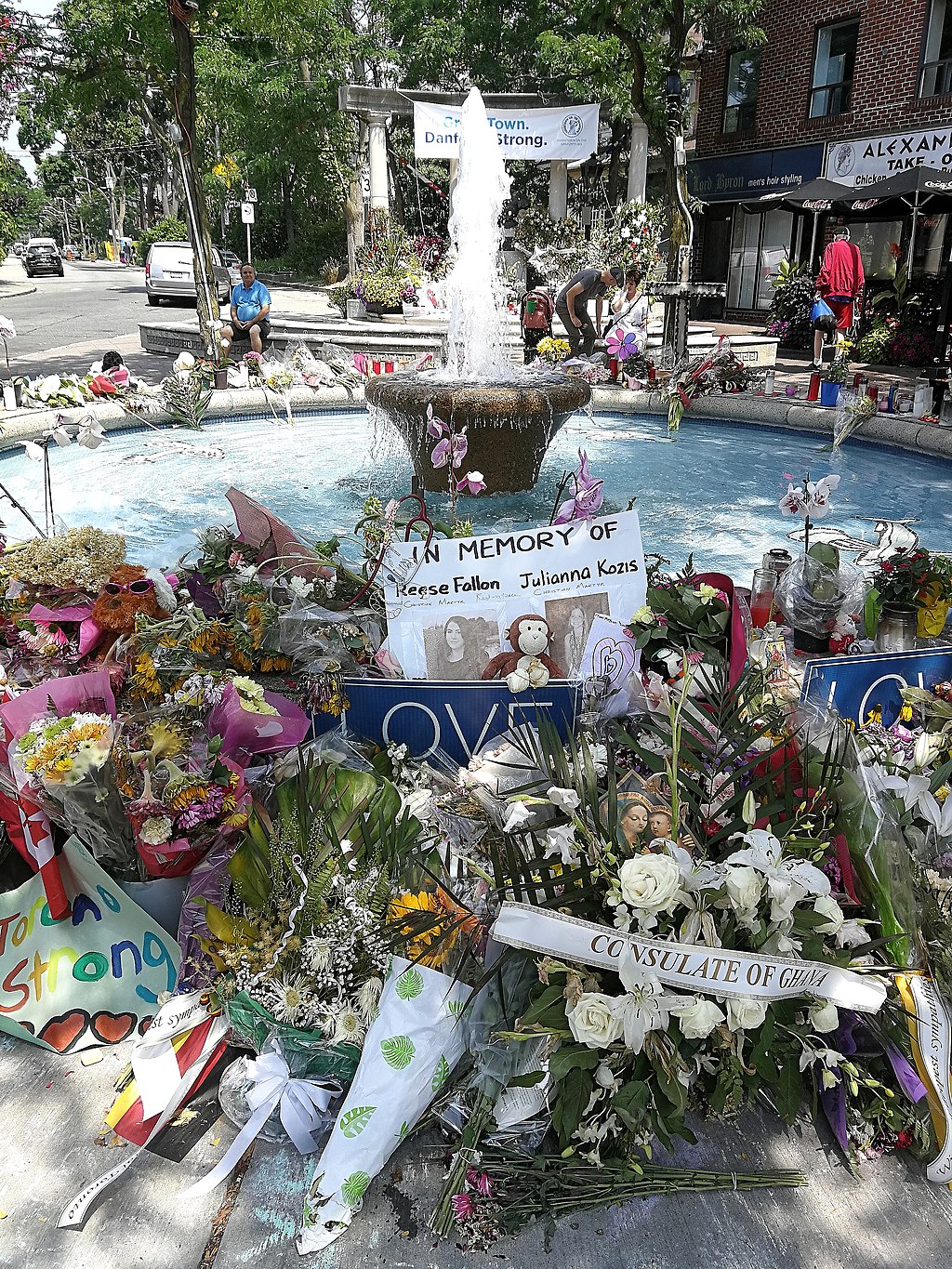
Social History
Toronto Danforth Shooting Leaves Two Dead and 13 Injured
Shortly before 10:00 p.m., a shooter walked into a busy Toronto neighbourhood and began shooting people indiscriminately. He walked along Danforth Avenue, shooting others before exchanging gunfire with police and turning his handgun on himself. The shooter killed 18-year-old Reese Fallon and 10-year-old Julianna Kozis and left 13 people injured. The Toronto Danforth Shooting led to calls for more gun control in Canada.
-
October 02, 2018

Science & Industry
Donna Strickland Wins Nobel Prize
The associate professor at the University of Waterloo became the first woman in 55 years, and only the third ever, to win the Nobel Prize in Physics. Strickland and Gérard Mourou were awarded for their work in laser physics. They shared the prize with Arthur Ashkin.
-
January 16, 2019
Science & Industry
BC Fossils Help Solve Evolutionary Riddle
The fossilized soft tissue of agnostids found in the 500-million-year-old Burgess Shale deposit helped researchers prove a connection between the bug-like creatures and trilobites, adding a new branch to the evolutionary tree of life.
-
February 08, 2019
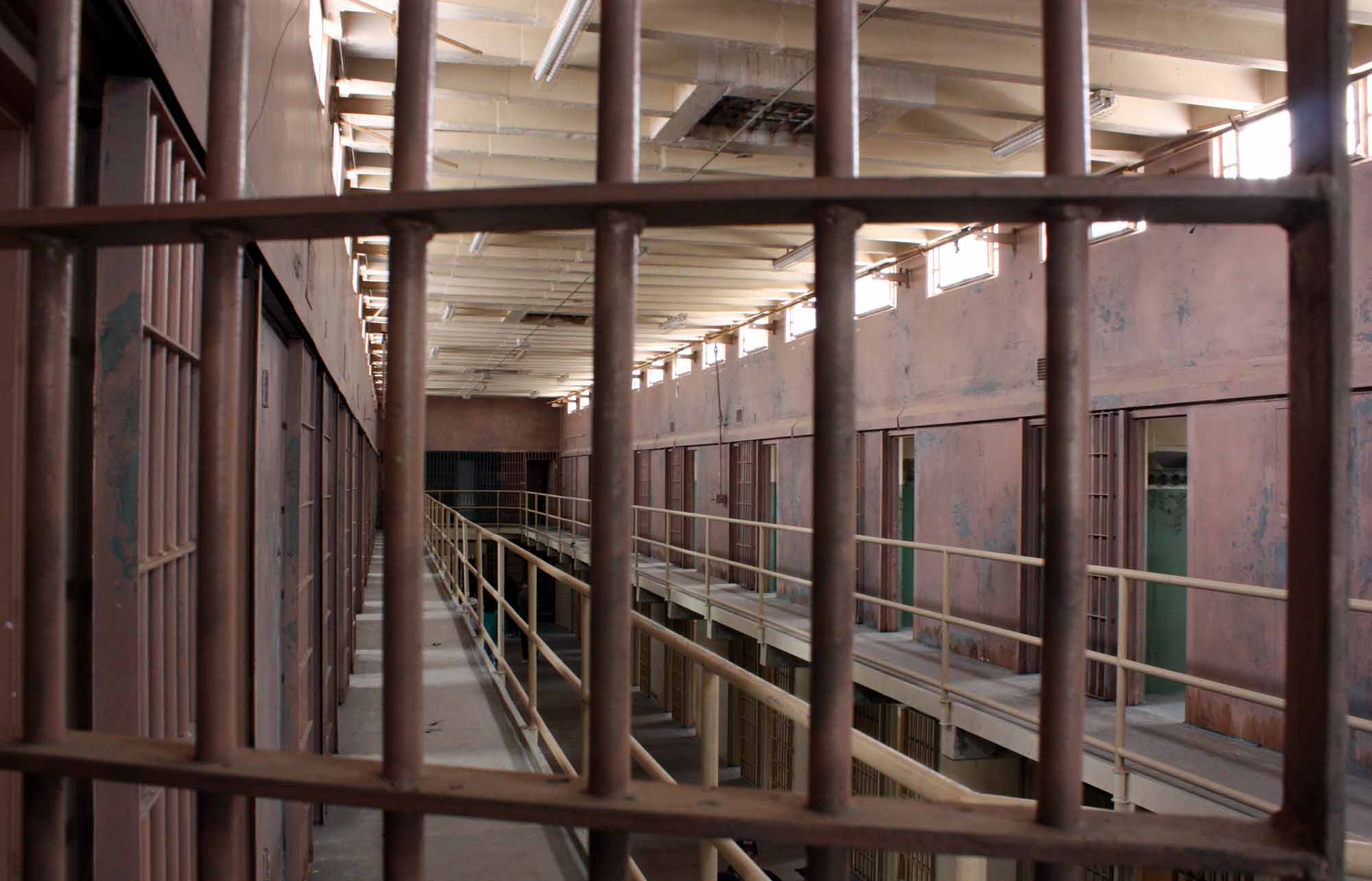
Social History
Serial Killer Bruce McArthur Sentenced to Life in Prison
After pleading guilty to eight counts of first-degree murder, Bruce McArthur was sentenced to life in prison with no chance of parole for 25 years. The 67-year-old former landscaper took his victims from Toronto’s gay village, dismembered them and hid the remains in yards and planter boxes owned by his clients.
-
February 08, 2019

Social History
Quebec City Mosque Shooter Sentenced to Life in Prison
Alexandre Bissonnette, who shot and killed six men at a mosque in Quebec City on 29 January 2017, was sentenced to life in prison with no chance of parole for 40 years.
-
June 03, 2019
Indigenous Peoples
Final Report of the National Inquiry into Missing and Murdered Indigenous Women and Girls Released
The final report of the National Inquiry into Missing and Murdered Indigenous Women and Girls reveals that persistent and deliberate human rights violations are the source of Canada’s staggering rates of violence against Indigenous women, girls and LGBTQ2S people. The report gives 231 calls for justice to governments, police forces and institutions.
-
December 12, 2019

Politics
Andrew Scheer Resigns as CPC Leader
Following weeks of speculation and pressure from inside and outside his party, Andrew Scheer announced that he would be stepping down as leader of the Conservative Party of Canada. Scheer had been criticized for failing to win the federal election on 21 October 2019 against a Liberal Party that was weakened by scandals, such as the SNC-Lavalin affair and revelations involving Justin Trudeau’s use of blackface. Scheer said he would continue to serve as the party’s leader until a convention is held to elect his successor.
-
January 07, 2020

Social History
Health Canada Issues First Warning Regarding “Mysterious Pneumonia”
The Public Health Agency of Canada issued its first warning about a mysterious and deadly viral illness, which had first been reported a week prior in Wuhan, China. Dr. Theresa Tam, Canada’s chief public health officer, said, “Right now we are monitoring the situation very carefully. It is worth maintaining vigilance.” Canadian travellers to Wuhan were advised to avoid “high-risk areas” such as farms and animal markets.
-
January 08, 2020
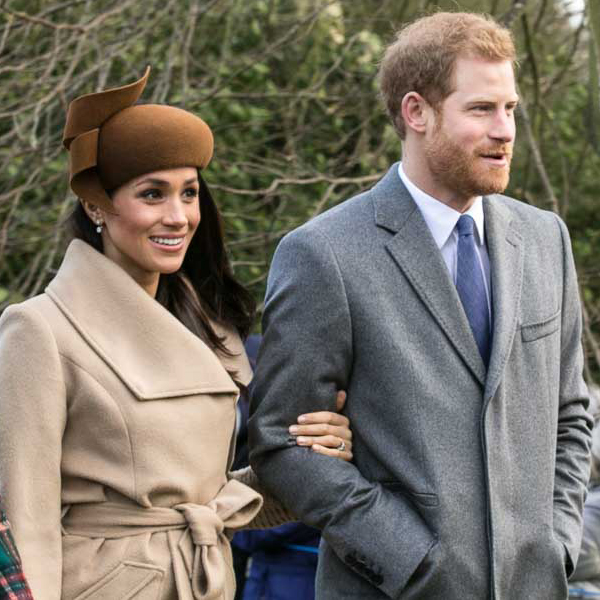
Social History
Prince Harry and Meghan to “Step Back” from Royal Duties
Prince Harry and Meghan Markle announced their plans to transition out of their roles as senior members of the Royal Family. “We now plan to balance our time between the United Kingdom and North America, continuing to honour our duty to The Queen, the Commonwealth, and our patronages,” their statement read. Buckingham Palace responded with a statement explaining that “Discussions with the Duke and Duchess of Sussex are at an early stage,” and that “these are complicated issues that will take time to work through.”
-
January 20, 2020
Social History
First COVID-19 in Canada at Toronto’s Sunnybrook Hospital
Canada’s first case of “a new coronavirus” was reported at Sunnybrook Hospital in Toronto. The patient in question arrived in Toronto on a flight from Guangzhou, China, on 22 January, after previously being in Wuhan. Meanwhile, more than 100 Canadians were seeking the federal government’s help to leave China.
-
April 18, 2020

Social History
Nova Scotia Attacks
Beginning at his home in Portapique, Nova Scotia, a man wearing an RCMP uniform and driving a replica police cruiser went on a 13-hour rampage that left 22 people dead and six injured. It was the worst mass killing in modern Canadian history. Concerns were later raised regarding the RCMP’s response to the events and its handling of the manhunt. The federal and Nova Scotia governments later launched a public inquiry into the events.
-
September 20, 2020

Arts and Culture
CBC’s Schitt’s Creek Completes Historic Sweep at Emmy Awards
Schitt’s Creek — a CBC sitcom about a riches-to-rags family created by Eugene Levy and son Dan Levy — won nine Primetime Emmy Awards and became the first comedy series ever to win all seven of the top awards: best comedy series, best lead and supporting actor and actress, and best writing and directing. Over six seasons, the show also won two Golden Globes and 24 Canadian Screen Awards, including three for best comedy series.
-
September 28, 2020

Indigenous Peoples
Joyce Echaquan Livestreams Hospital Staff’s Refusal to Treat Her before She Dies
At a hospital in Joliette, Quebec, Joyce Echaquan, a 37-year-old Atikamekw woman and a mother of seven, died shortly after she livestreamed a nurse and an orderly refusing to tend to her as they made racist, derogatory comments about her. On 5 October, coroner Gehane Kamel reported that hospital staff failed to properly assess the heart palpitations Echaquan was experiencing and instead assumed she was suffering from opioid withdrawal. When Echaquan became distressed and agitated, hospital staff called her “theatrical” and strapped her to a bed. Kamel called the incident an “undeniable” example of systemic racism. A lawyer for Echaquan’s family planned to file a human rights complaint and a civil suit against the hospital.
-
April 09, 2021

Social History
Canada Outpaces US in New COVID-19 Cases Amid Third Wave
For the first time in the pandemic, the rolling seven-day average number of new cases in Canada (206.84 cases per million people) surpassed that of the United States (203.81 cases per million people). The third wave was hitting hardest in Ontario, which reported a record-high 4,456 new COVID-19 cases. In more positive news, COVID-19 was proving to be less deadly than it had been a year earlier.
-
April 14, 2021

Social History
7-Day Average of New Cases at Highest Point in Pandemic
Canada had its worst week yet for new COVID-19 cases. The rolling seven-day average hit 8,444.7 cases. Hospitals in Ontario and Quebec were being pushed to their breaking points, while British Columbia broke a record for the number of hospitalizations.
-
April 15, 2021

Social History
Canada Sets New Daily Record for COVID-19 Cases
Canada recorded 9,559 new COVID-19 infections — the most in a single day during the pandemic. Ontario set a record of its own with 4,736 new daily cases.
-
April 22, 2021

Social History
Doug Ford Apologizes for Widely Criticized Measures
Ontario premier Doug Ford apologized for measures his government had introduced a week earlier. Many of the new rules, including closing all playgrounds and empowering police to detain people out in public during a stay-at-home order, were criticized as “draconian.” On 26 April, three armed forces medical teams were sent to Toronto to assist health care workers, while hospitals worried about possibly having to start triaging patients.
-
May 01, 2021

Social History
Alberta has Highest Per-capita COVID-19 Cases in Canada
For the third day in a row, Alberta set a record for new daily COVID-19 cases, with 2,433. With a seven-day rolling average of 440.5 daily cases per million people, Alberta had the highest per capita infection rate in Canada. It was also higher than any state in the US.
-
May 11, 2021

Social History
Ontario Pauses Use of AstraZeneca Vaccine
Ontario announced that it would be pausing the use of the AstraZeneca vaccine due to concerns over a rare but potentially fatal blood clotting disorder caused by the vaccine. As of 8 May, more than 900,000 shots of the vaccine had been given in the province. There had been eight cases of the disorder in Ontario and at least four more in the rest of the country. Three people had died.
-
May 13, 2021

Social History
Greyhound Ends Bus Service in Canada
After shutting down its services in Western Canada in 2018 and suffering a year without revenue due to the COVID-19 pandemic, Greyhound Canada permanently ceased operations after almost 100 years in business. The company’s American affiliate said that it would continue to operate cross-border bus routes to and from the US.
-
May 21, 2021

Social History
Maple Leafs and Canadiens Faceoff in First Playoff Series Since 1979
Arch rivals Toronto Maple Leafs and Montreal Canadiens began the first playoff series against each other since 1979. The higher-seeded Maple Leafs took a commanding 3–1 lead in the series before the Canadiens won two games in overtime to force a Game 7, which they won 3–1 en route to their first Stanley Cup Finals appearance in almost 30 years.
-
May 27, 2021

Indigenous Peoples Social History
200 Possible Unmarked Graves Found on Grounds of Kamloops Residential School
Ground disturbances indicating 200 possible unmarked graves were found using ground penetrating radar on the grounds of the former Kamloops Indian Residential School — at one time the largest residential school in the country. Chief Rosanne Casimir of the Tk’emlups te Secwepemc First Nation called the finding an “unthinkable loss that was spoken about but never documented.”
-
May 27, 2021

Social History
Justin Trudeau Apologizes for Internment of Italian Canadians
In a speech in the House of Commons, Prime Minister Justin Trudeau apologized for the federal government’s internment of Italian Canadians during the Second World War. Around 600 Italian Canadians suspected of sympathizing with fascism were placed in internment camps during the war, while 31,000 Italian Canadians were registered as enemy aliens and were forced to report to officials once a month.
-
June 06, 2021

Social History
Muslim Family Killed in Hit-and-Run Hate Crime
Two parents, a grandparent and a daughter were killed and a nine-year-old son was left in serious condition after the family was struck by a pickup truck while walking along the sidewalk in London, Ontario. Police confirmed that the attack was “a planned, premeditated act and that the family was targeted because of their Muslim faith.” (See also Islamophobia in Canada.) A vigil was held in London two days later. The accused was charged with four counts of murder and one count of attempted murder. He was also charged with terrorism under section 83 of the Criminal Code. The nine-year-old orphaned boy was released to relatives a week later.
-
June 23, 2021

Indigenous Peoples
Hundreds of Possible Unmarked Graves Found at Saskatchewan Residential School
One month after the discovery of 200 possible unmarked graves at a former residential school in Kamloops, BC, ground-penetrating radar revealed an estimated 751 possible unmarked graves at the site of the former Marieval Indian Residential School in Cowessess First Nation territory, about 150 km east of Regina. The radar search began on 1 June. The Marieval school was open from 1899 to 1997 and was administered by the Catholic Church until 1968.
-
July 01, 2021

Indigenous Peoples
Thousands Attend “Cancel Canada Day” Rally in Ottawa
The annual Canada Day celebrations on Parliament Hill were replaced this year by a “Cancel Canada Day” rally organized by Idle No More and the Anishinaabe nation. Thousands of people, many of them wearing orange shirts, marched from the offices of Indigenous Services Canada in Gatineau to Parliament Hill, where they gathered to “honour all of the lives lost to the Canadian state.” Flags on Parliament Hill flew at half-mast in honour of the hundreds of dead children that had been found on the sites of former residential schools weeks earlier.
-
July 12, 2021

Indigenous Peoples
160+ Possible Unmarked Graves Found at Another BC Residential School
Penelakut Tribe Chief Joan Brown said in a statement that more than 160 “undocumented and unmarked” graves had been found on Penelakut Island, formerly Kuper Island, off the coast of Vancouver Island southeast of Nanaimo. The possible graves were found at the site of the Kuper Island Industrial School, a residential school run by the Catholic Church from 1890 to 1969 and by the federal government from 1969 until 1975.
-
July 25, 2021

Sports
Canada Wins First Medal at 2020 Tokyo Olympics
Swimmers Maggie Mac Neil, Kayla Sanchez, Rebecca Smit, and Penny Oleksiak posted a time of 3:32.78 to win silver in the women’s 4x100 m freestyle relay. This was Canada’s first medal of the Tokyo Games. Mac Neil went on to win Canada’s first gold of the Games in the women’s 100 m butterfly.
-
July 26, 2021

Sports
Jessica Klimkait Becomes First Canadian Woman to Win Olympic Judo Medal
At the 2020 Olympic Summer Games in Tokyo, Jessica Klimkait became the first Canadian woman to win an Olympic medal in judo, winning bronze in the women’s 57 kg division. Earlier in 2021, Klimkait became the second Canadian judoka, after Christa Deguchi, to win gold at the World Judo Championships. Klimkait was one of two Canadian women to medal in judo at the Tokyo Olympics. Catherine Beauchemin-Pinard won the bronze medal in the women’s 63 kg class on 27 July 2021.
-
July 26, 2021

Indigenous Peoples Politics
Mary Simon Becomes First Indigenous Person To Be Governor General
Inuk leader Mary Simon was formally installed as Canada’s 30th Governor General, making her the first Indigenous person to hold Canada’s viceregal position.
-
August 03, 2021

Sports
Canada Wins Olympic Gold in Women’s Soccer
After setting a goal to “change the colour” of the Olympic bronze medal it won in Rio in 2016, the Canadian women’s soccer team defeated Sweden to win Canada’s first Olympic gold medal in soccer. With the game tied 1–1 after regulation time, Julia Grosso scored the winning goal in the sixth round of penalty kicks. Midfielder Quinn became the first non-binary person to win an Olympic medal. (See also Canada at the 2020 Olympic Summer Games.)
-
August 11, 2021

Social History
Michael Spavor Sentenced to 11 Years in Prison in China
Michael Spavor, who had been detained in China on espionage charges since December 2018 following Canada’s detention of Huawei executive Meng Wanzhou, was sentenced to 11 years in prison by a Chinese court. Prime Minister Justin Trudeau issued a statement calling the verdict “absolutely unacceptable and unjust… For Mr. Spavor, as well as for Michael Kovrig who has also been arbitrarily detained, our top priority remains securing their immediate release. We will continue working around the clock to bring them home as soon as possible.”
-
August 26, 2021

Military/Rebellions
Canada Evacuates 3,700 People from Afghanistan
The Canadian military completed its evacuation of Afghanistan. 3,700 people — a combination of Canadian citizens, foreign nationals and Afghan refugees — were taken out of the country since 4 August. This followed the rapid deterioration of the country and the rise of the Taliban after US military began to withdraw from the war-torn country in July after a 20-year occupation. The US military completed its withdrawal on 30 August. (See also Afghan Canadians; Canada and the War in Afghanistan.)
-
August 31, 2021

Social History
More Than 1,000 Deaths from Drug Toxicity in BC So Far This Year
Five years since being declared a public health emergency by the BC government, the opioid crisis in the province showed no signs of relenting. A report from the BC Coroners Service found that in February 2021, BC’s illicit drug toxicity death rate was an average of 5.5 deaths per day and the number of deaths per 100,000 people due to illicit drug toxicity was the highest since 1995.
-
September 20, 2021

Politics
Trudeau and Liberals Win Third Term, Second Consecutive Minority
The 36-day election campaign that began on 15 August finished in much the same way as the previous federal election in 2019 — with similar seat counts for all parties and a Liberal minority government. Erin O’Toole and the Conservatives had been in a statistical dead heat with the Liberals in late August and went on to narrowly win the popular vote for the second consecutive election. However, the bad press generated by an unfolding health crisis in Alberta under conservative premier Jason Kenney combined with the successful efforts of Maxime Bernier’s People’s Party of Canada to eat into the Conservatives’ vote share tipped the scales toward a Liberal victory. Following the election, many questioned the efficacy of spending more than $600 million on an election that replicated the status quo.
-
September 24, 2021

Social History
The “Two Michaels” Are Released from China
Michael Spavor and Michael Kovrig, two Canadians who were detained in China on espionage charges on 10 December 2018 in retaliation for the detention of Huawei CFO Meng Wanzhou in Vancouver earlier that month, were released by Chinese authorities. They returned to Canada on 25 September. Their release came one day after a court in BC dropped the case seeking to extradite Meng to the US over wire fraud and conspiracy charges. The two Michaels had spent more than 1,020 days imprisoned in China.
-
September 27, 2021
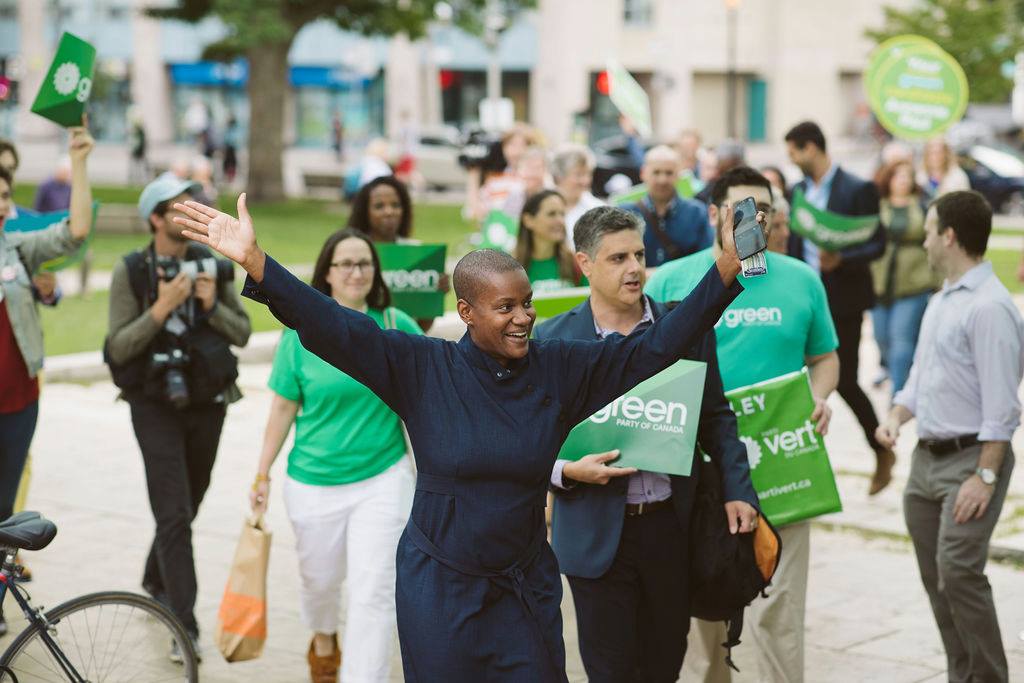
Social History
Annamie Paul Resigns as Green Party Leader
After becoming the first Black Canadian and the first Jewish woman to lead a major federal political party in Canada when she was elected Green Party leader in October 2020, Annamie Paul lost a by-election for Toronto Centre later that month. She began to lose support within her party in summer 2021 over her muted position on the escalating Israeli-Palestinian conflict. Severe infighting within the party led to an attempt to remove Paul as leader and revoke her party membership. Paul persevered, but in the election on 20 September she lost her third bid for the Toronto Centre seat. The Green Party’s share of the national popular vote fell from 6.5 per cent in the 2019 election to only 2.3 per cent. Paul resigned as Green Party leader and called her time in the role “the worst period” in her life.
-
September 30, 2021

Indigenous Peoples
First National Day for Truth and Reconciliation
Canada recognized the first National Day for Truth and Reconciliation as an annual statutory holiday. The creation of the holiday was one of 94 recommendations in the Truth and Reconciliation Commission’s final report, which was published in June 2015. The holiday was officially created with the passage of Bill C-5 on 3 June 2021, less than two weeks after the confirmation of 215 unmarked children’s graves at the site of a former residential school near Kamloops, BC. Prime Minister Justin Trudeau made headlines on the first National Day for Truth and Reconciliation after he spent the day on vacation in Tofino, BC, rather than participate in any official events.
-
October 14, 2021

Environment
State of Emergency Declared in Iqaluit Due to Tainted Water Supply
Two days after discovering petroleum hydrocarbons in Iqaluit’s water supply, the Government of Nunavut declared a state of emergency in the city. (See also Water Treatment; Water Pollution.) The first of at least five shipments of potable water arrived in Iaqluit by airplane. The water was distributed in rations of 16 litres per household. Officials believed the contamination was caused by the effects of melting permafrost on underground pipes.
-
November 01, 2021

Social History
Global COVID-19 Death Toll Tops Five Million
Less than two years after the first case of COVID-19 was reported in Wuhan, China, the global death toll from COVID-19 surpassed 5 million.
-
November 02, 2021

Sports
First Canadian MLB General Manager to Win World Series
When the Atlanta Braves defeated the Houston Astros 7–0 in Game 6 of the World Series to win their first championship since 1995, Alex Anthopoulos became the first Canadian general manager in MLB history to win a World Series.
-
November 04, 2021

Social History
Canada to Spend a Record $308 Billion on Health Care in 2021
A report issued by the Canadian Institute for Health Information (CIHI) concluded that Canada would spend $308 billion on health care in 2021, due to the costs of the COVID-19 pandemic. The CIHI said that the rate of health care spending was the highest in more than 30 years. The expenditure was expected to equal more than 12 per cent of Canada’s gross domestic product (GDP) in 2021.
-
November 14, 2021

Environment
“Worst Weather Storm in a Century” Causes Floods, Wipes Out Highways and Kills Five in BC
A “significant atmospheric river” inundated the Lower Mainland and the southern interior of BC with a month’s worth of rain in less than 48 hours. Many communities recorded more than 100 mm of rain; the town of Hope had the most with 252 mm. A landscape scarred by forest fires and other effects of climate change resulted in severe mudslides and floods in 17 regional districts. Five people were killed in a mudslide on Highway 99 north of Pemberton, and hundreds of people in the province were evacuated by helicopter after they were stranded by mudslides on highways and roads. Stretches of the Coquihalla Highway and the Trans-Canada Highway were badly damaged or destroyed. The town of Merritt was flooded, forcing more than 7,000 residents to evacuate. The Sumas Prairie, an agricultural area between Abbotsford and Chilliwack that had once been a lake, was flooded, causing hundreds of millions in damages. The storm, which came four and a half months after a heat wave that killed almost 600 people in BC, also took a deadly toll on the region’s livestock. An estimated 628,000 poultry, 12,000 hogs and 420 dairy cows were killed and 110 beehives were destroyed.
-
November 19, 2021

Social History
Health Canada Approves COVID-19 Vaccines for Children Aged 5–11
Health Canada approved the COVID-19 vaccine for children aged 5–11. The federal government was expecting a delivery of 2.9 million pediatric doses, enough to give a first shot to every Canadian in that age group. Provincial governments noted that they were ready to begin administering the shots as soon as the vaccines were delivered.
-
November 29, 2021
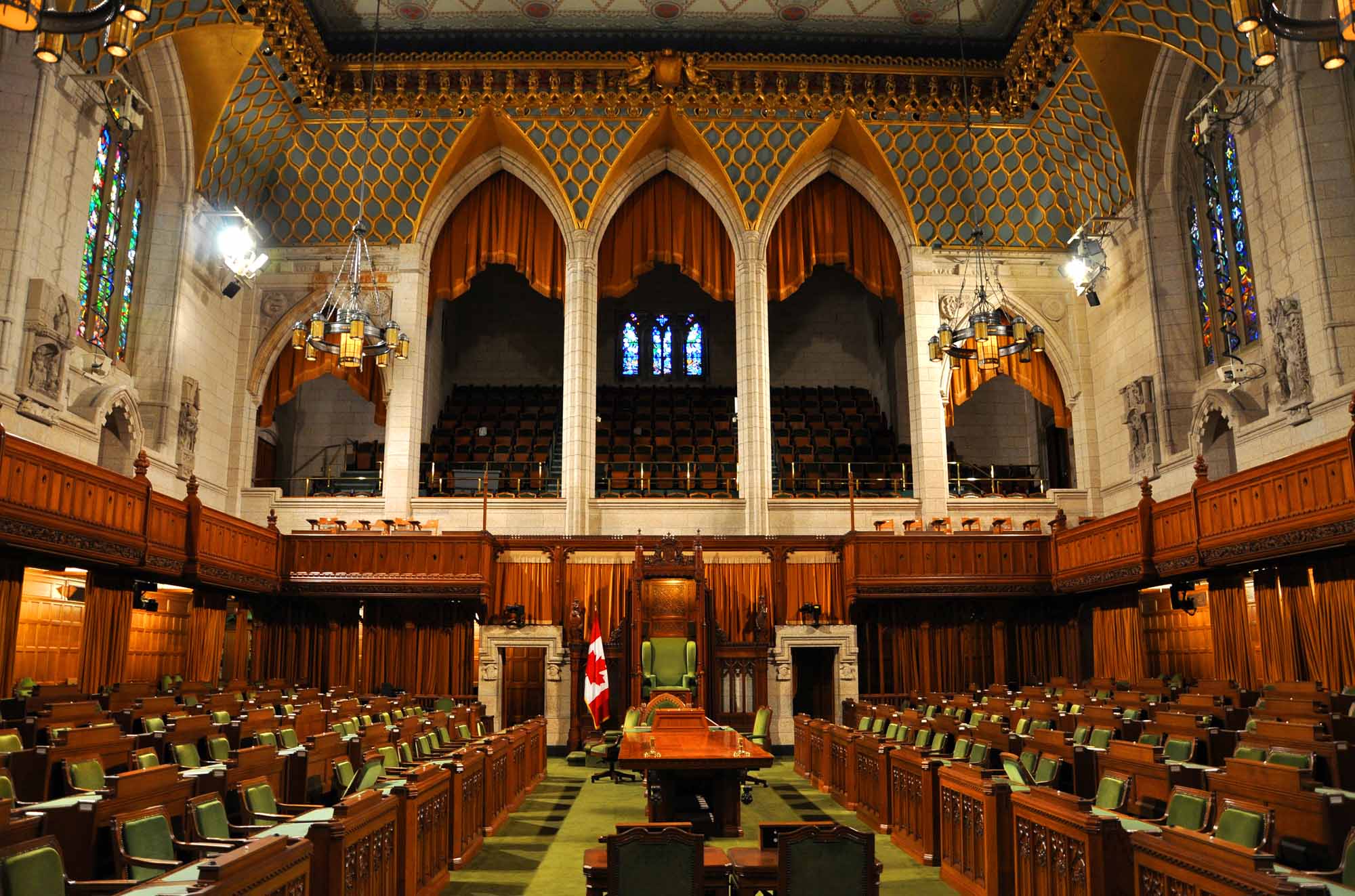
Social History
Federal Government Tables Bill to Ban Conversion Therapy
After promising to reintroduce legislation banning conversion therapy in Canada within the first 100 days of its new mandate, the minority Liberal government of Justin Trudeau tabled Bill C-4. It included a broader definition of what constituted conversion therapy — also known as the ex-gay movement — as well as the addition of four new offenses to the Criminal Code. If passed, the legislation would make it illegal to force anyone to undergo conversion therapy, punishable by up to five years in prison. It would also allow courts to order the seizure or removal of conversion therapy advertisements.
-
December 08, 2021

Sports
Decathlete Damian Warner Wins Lou Marsh Trophy
Damian Warner received the Lou Marsh Trophy as Canada’s athlete of the year, in recognition of his gold medal victory in decathlon at the 2020 Olympic Summer Games in Tokyo. Warner set an Olympic record with 9,018 total points and became one of only four decathletes to reach 9,000 points in international competition. He also received the 2021 Lionel Conacher Award as Canada’s male athlete of the year and was inducted into Canada’s Walk of Fame as part of the class of 2021. Meanwhile, calls grew to rename the Lou Marsh Trophy, due to Marsh’s long, documented history of racism, anti-Semitism and discrimination.
-
December 09, 2021

Social History
Food Prices to Increase 5–7 Per Cent, Study Finds
Canada’s Food Price Report, compiled by researchers at several Canadian universities, predicted that food prices in Canada would increase by 5–7 per cent in 2022. The report also projected that prices at restaurants would rise by 6–8 per cent and that the average family of four would spend up to $14,767 on food.
-
December 15, 2021

Indigenous Peoples Social History
Children Who Didn’t Come Home from Residential Schools Named Canadian Press Newsmaker of the Year
The Canadian Press named “children who didn’t come home from residential schools” as Canada’s Newsmaker of the Year. More than 1,000 unmarked graves on the sites of former residential schools across Western Canada had been confirmed since the first findings at the former Kamloops Indian Residential School were made public on 27 May.
-
December 15, 2021

Science & Industry
Inflation Indicator at 18-Year High
Statistics Canada announced that Canada’s inflation rate in November was 4.7 per cent. This was the second month in a row that the inflation rate was the highest since 2003. The increase was consistent with a global trend. The United States, for example, had an inflation rate of 6.8 per cent — the highest in almost 40 years.
-
January 18, 2022
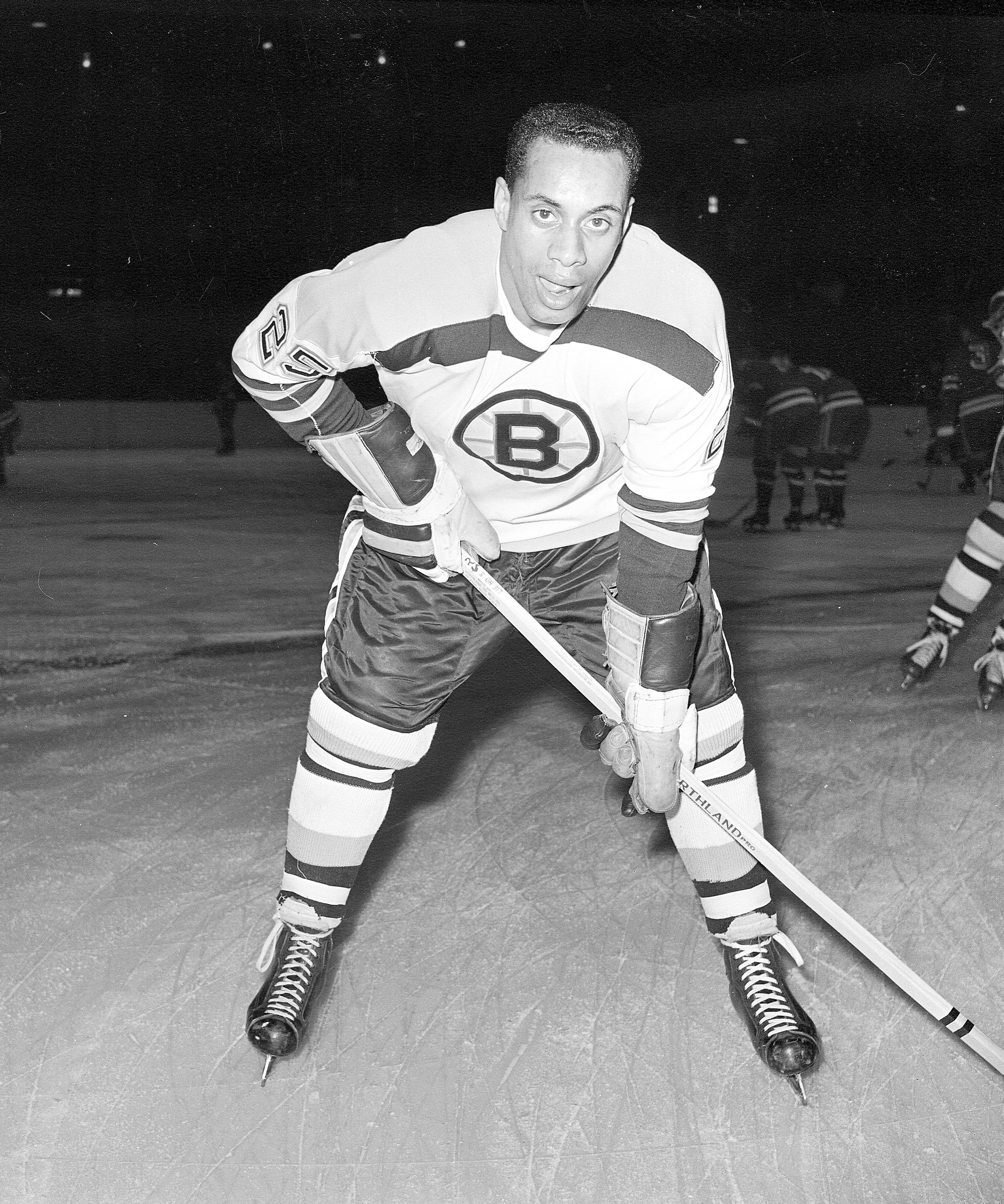
Sports
Boston Bruins Retire Willie O’Ree’s No. 22
Willie O’Ree, who became the NHL’s first Black hockey player when he took to the ice with the Boston Bruins on 18 January 1958, became the 12th player in franchise history to have his number retired. O’Ree’s No. 22 was raised to the rafters before a home game at TD Garden on the 64th anniversary of his first NHL game.
-
January 21, 2022

Social History
Nearly 60 Per Cent of Families Struggling to Buy Food, Poll Finds
A poll conducted by the Angus Reid Institute found that 57 per cent of Canadians had struggled recently to feed their families — an increase from 36 per cent in 2019, the last time a similar poll was conducted. Supply chain issues sparked by the COVID-19 pandemic had led to an inflation rate of 5.1 per cent — the highest in 30 years. Labour and product shortages were also wreaking havoc on the business of grocery stores, which observers said could further threaten food security.
-
January 23, 2022

Social History
Pandemic Lockdowns Have Led to Increase in Intimate Partner Violence, Experts Say
Experts on intimate partner violence released a study, which found that pandemic-related public health restrictions were giving abusers “circumstances to increase their capacity to control and to manipulate.” The study also argued that previously non-violent people were becoming increasingly abusive due to the stress and tension brought about by the pandemic. There was a massive increase in phone calls to support groups and help lines, with one Toronto-based organization reporting a 9,000 per cent increase from pre-pandemic levels.
-
January 28, 2022

Politics Social History
“Freedom Convoy” Arrives in Ottawa and Begins Occupation of Capital
Convoys of truckers, which had been making their way to Ottawa from Western and Eastern Canada, finally arrived in Canada’s capital to protest public health mandates and restrictions. The convoys were cheered by supporters across the country, many of whom greeted them along highway overpasses. However, the protest’s stated goal of unseating Prime Minister Justin Trudeau and overthrowing the government left many Canadians uneasy and brought to mind the insurrection at the US Capitol on 6 January 2021 — as did the presence of Confederate and Nazi flags among the protesters. With 85 per cent of Canadians vaccinated, including about 90 per cent of all truckers, the protest was seen as a far-right fringe movement. Observers noted that online rhetoric surrounding the protest had grown “increasingly worrisome.” Similar Freedom Convoy protests formed blockades at a border crossing in Coutts, Alberta, and at the Ambassador Bridge between Windsor, Ontario, and Detroit, Michigan, on 29 January and 7 February, respectively.
-
September 08, 2022

Politics Social History
Death of Queen Elizabeth II
Queen Elizabeth II died at age 96 at Balmoral Castle in Scotland with the Royal Family by her side. They had gathered there earlier that day after doctors had expressed concern for her health and put her under medical supervision. Having occupied the throne for 70 years and 214 days, Elizabeth was Britain’s longest-reigning monarch and the second-longest reigning monarch in recorded history. She was Queen of Canada for almost half of the country’s existence. Upon her death, Charles automatically ascended to the role of king. He became the 62nd British monarch and, at age 73, the oldest ever to assume the throne.
-
March 24, 2024

Arts and Culture
Maestro Fresh Wes Inducted into Canadian Music Hall of Fame
At the 2024 Juno Awards in Halifax, pioneering Canadian rapper Maestro Fresh Wes became the first hip hop artist to be inducted into the Canadian Music Hall of Fame. That same year, he also became the first hip hop artist to receive a Governor General’s Performing Arts Award for Lifetime Artistic Achievement. His landmark hit, “Let Your Backbone Slide,” was inducted into the Canadian Songwriters Hall of Fame in 2019.
-
July 07, 2024
Arts and Culture
Alice Munro’s Daughter Reveals Shocking Family Secret
Two months after the death of author Alice Munro, her youngest daughter, Andrea Skinner, revealed in a Toronto Star article that she had been sexually assaulted by Munro’s second husband, Gerald Fremlin, in 1976, when she was nine years old. The abuse was an open secret in the family for decades. Munro chose to stay with Fremlin until his death in 2013, even after Fremlin was convicted of indecent assault over the incident in 2005. Skinner ended her relationship with Munro around 2002 and did not reconcile with her before her death.
-
August 09, 2024

Sports
Andre de Grasse Ties Penny Oleksaik as Canada’s Most Deocrated Olympian
At the 2024 Olympic Summer Games in Paris, sprinter Andre de Grasse tied swimmer Penny Oleksiak as Canada’s most decorated Olympian with seven medals. After failing to qualify in all of their individual events, the team of de Grasse, Aaron Brown, Brendon Rodney and Jerome Blake achieved a massive upset victory in the men’s 4x100 m relay. With the heavily favoured American team disqualified for a botched exchange, De Grasse took the baton with Canada roughly in third place and ran an explosive final leg to win gold. It was Canada’s first Olympic gold medal in the men’s 4x100 m relay since 1996.
-
September 11, 2024

Arts and Culture
Stolen Yousuf Karsh Photograph Found in Italy
A global search by Ottawa police in conjunction with other organizations located the famous “Roaring Lion” photograph of Sir Winston Churchill that had been announed stolen from Ottawa’s Chateau Laurier hotel in August 2022. The photograph, by famed Armenian Canadian photgrapher Yousuf Karsh, is widely regarded as one of the most significant portraits of the 20th century. A 43-year-old Ontario man was arrested in connection with the theft, which was called “Canada’s art heist of the century."
-
October 10, 2024

Sports
Colored Hockey League of the Maritimes Declared an Event of National Historic Significance
The Colored Hockey League of the Maritimes, an all-Black men’s hockey league founded in Halifax in 1895 and disbanded in the 1930s, was declared an event of national historic significance by Parks Canada’s National Program of Historical Commemoration. Canada Post had issued a stamp commemorating the league in 2020. The stamp features an image of Black hockey players on a frozen pond in front of the Halifax Citadel.





